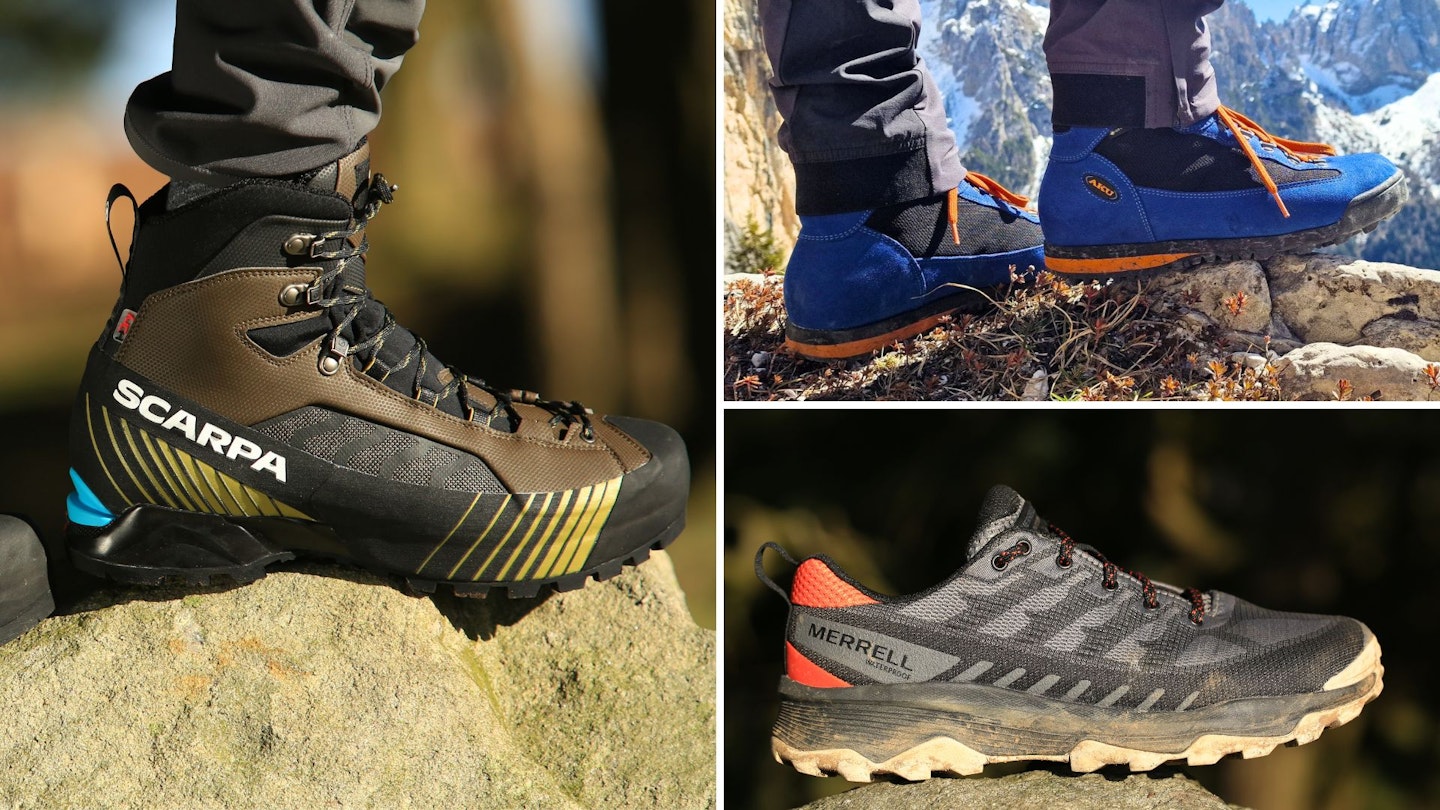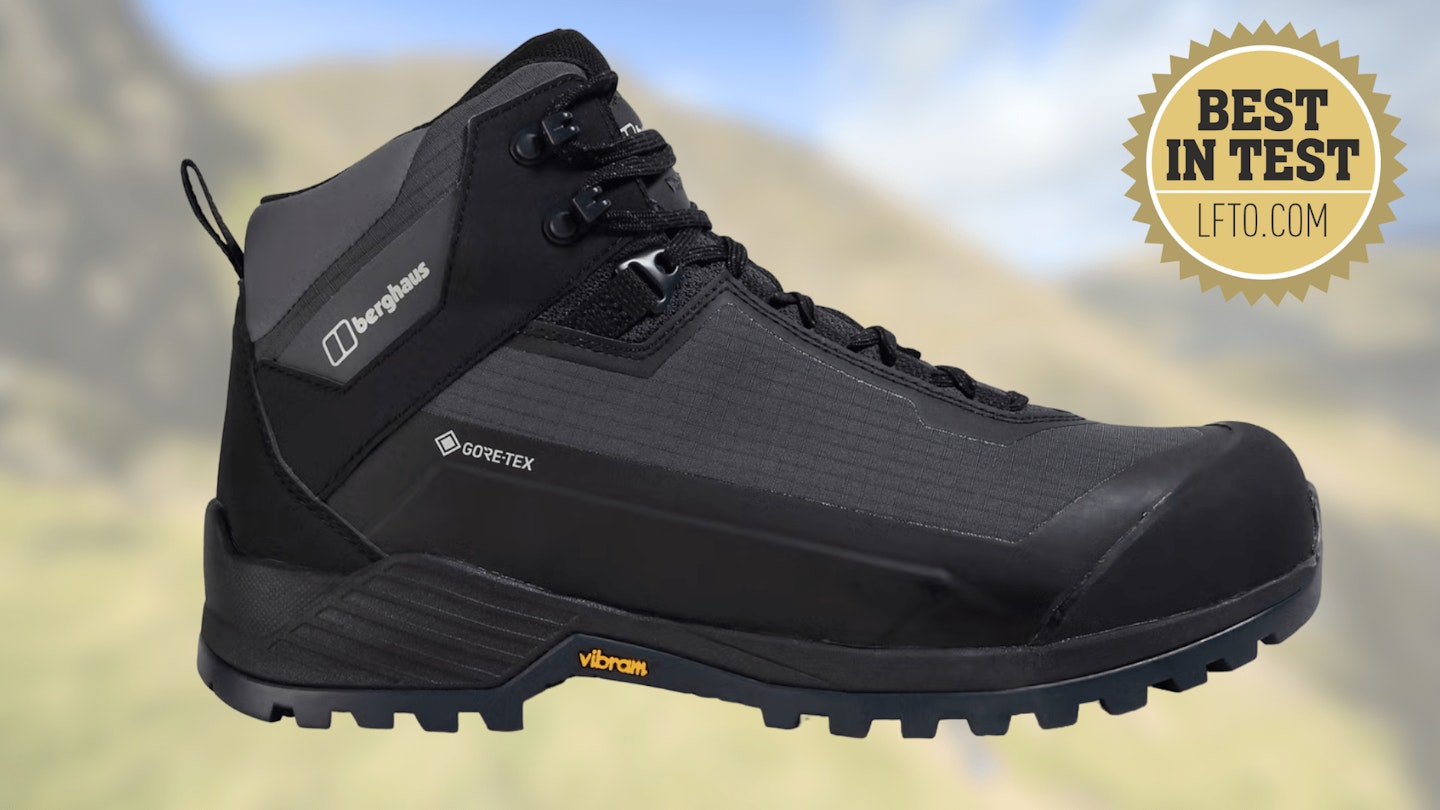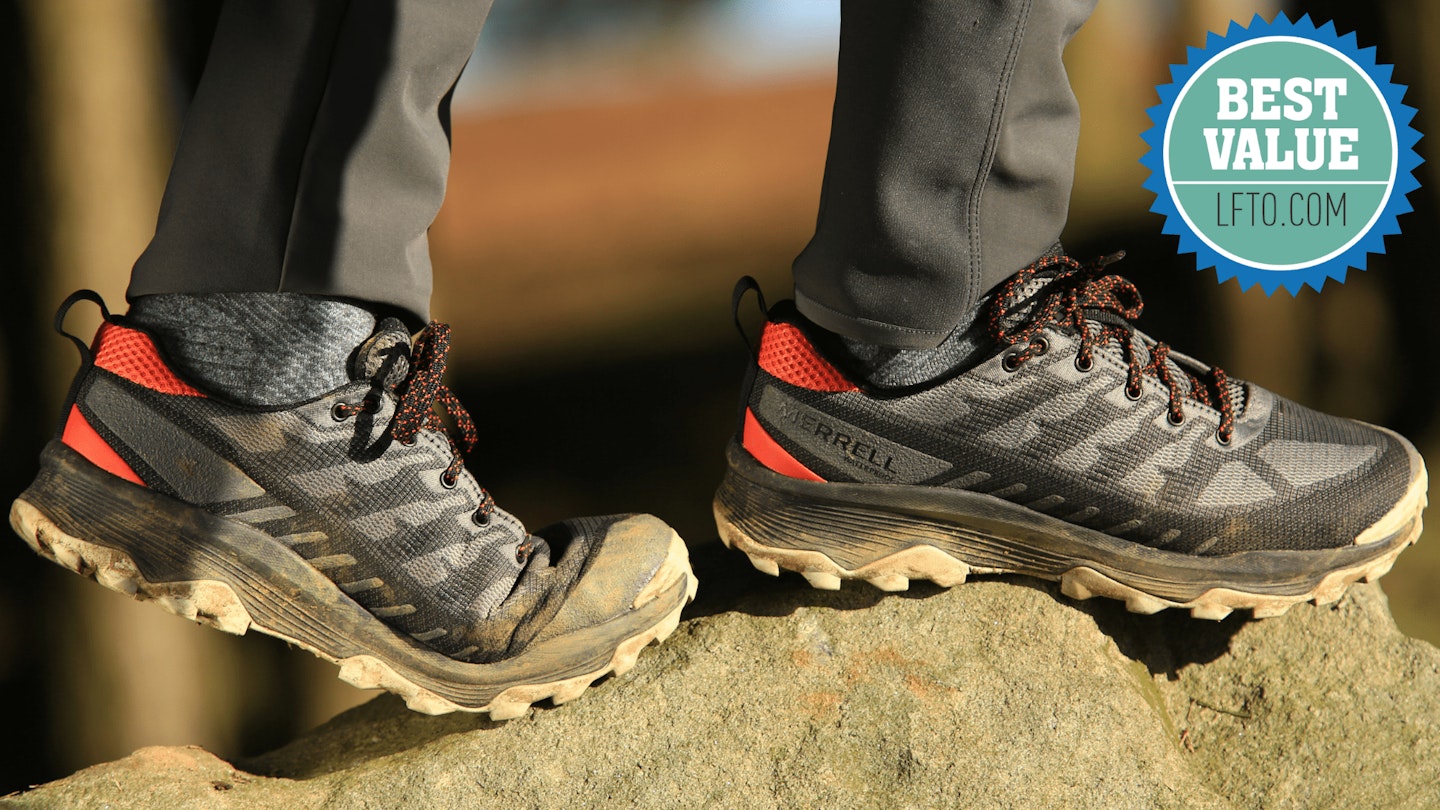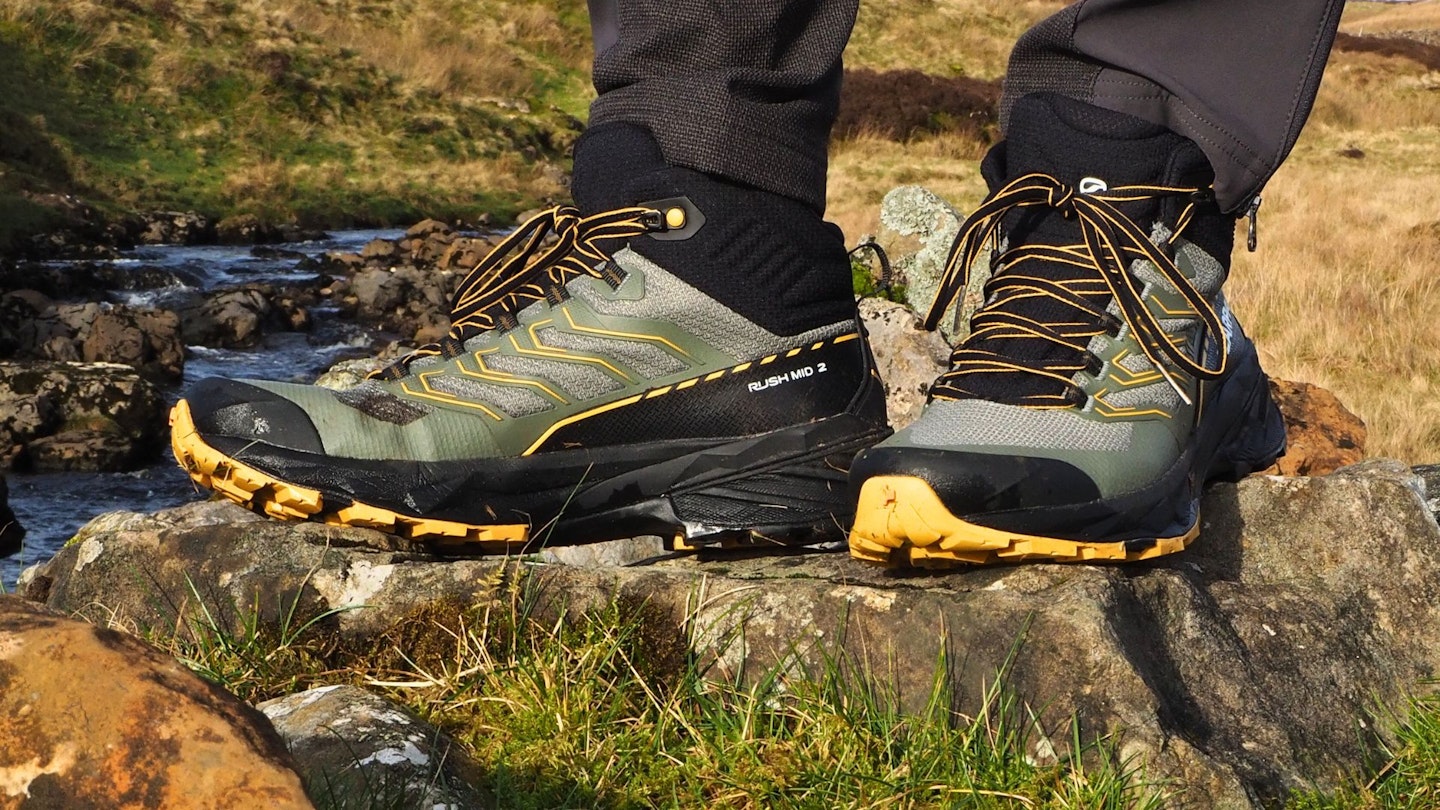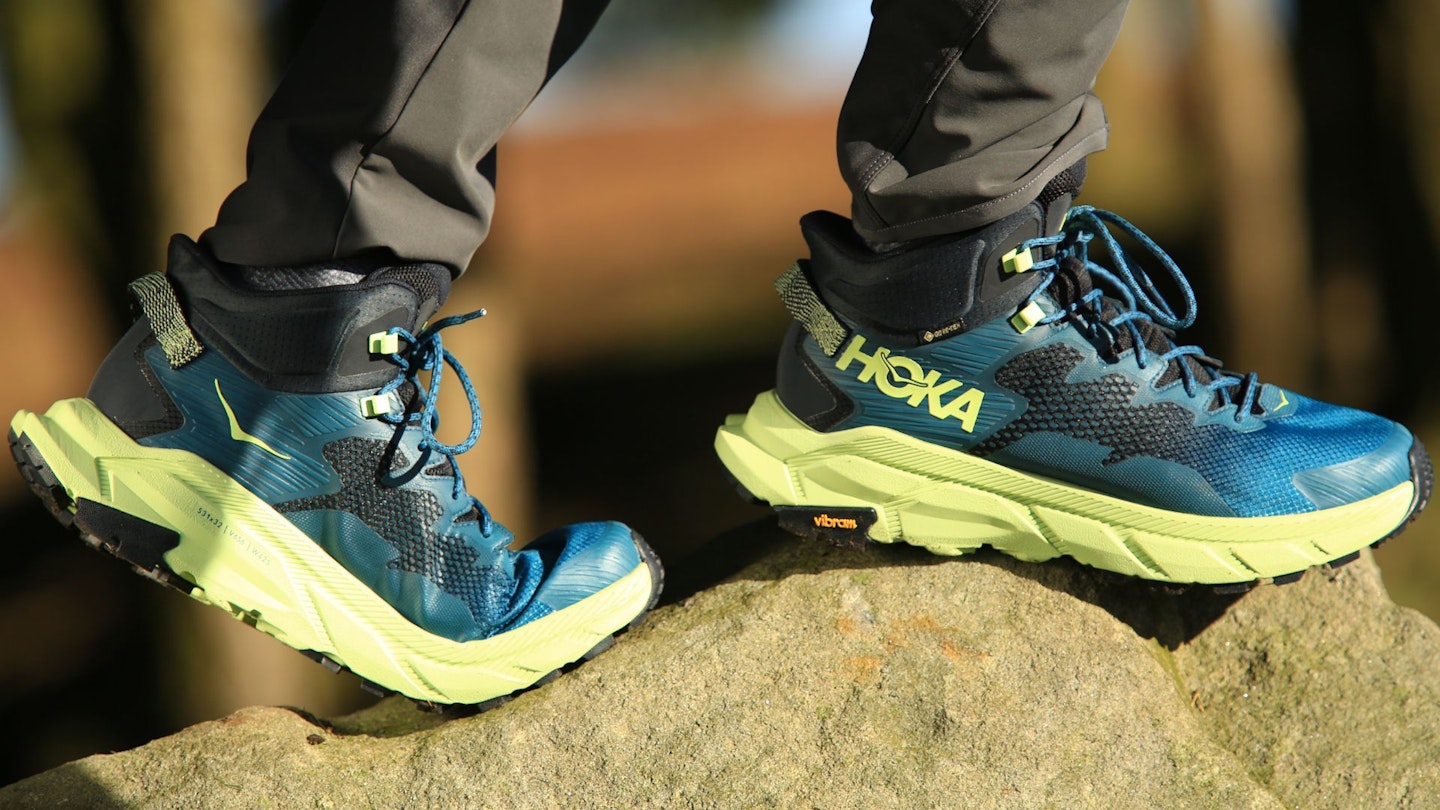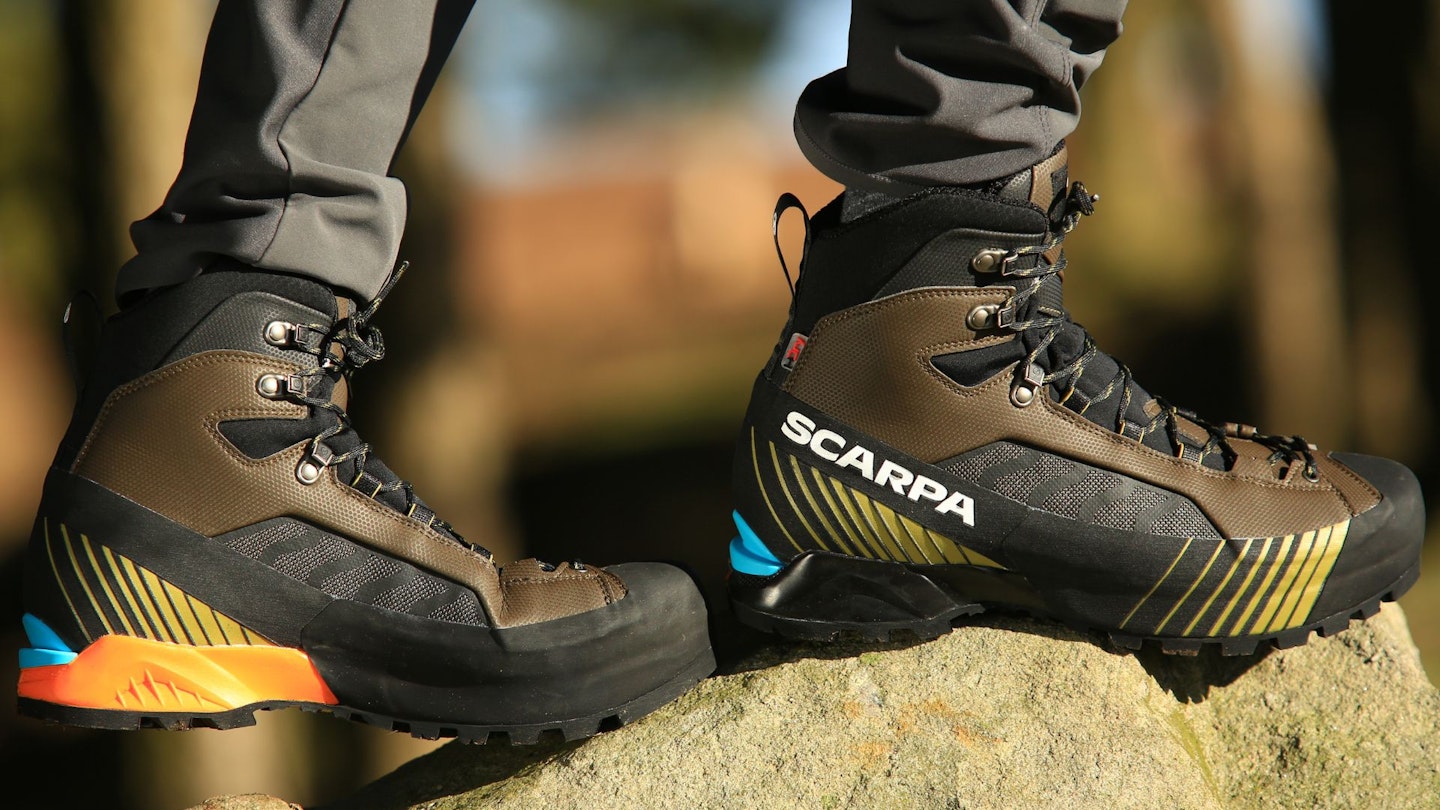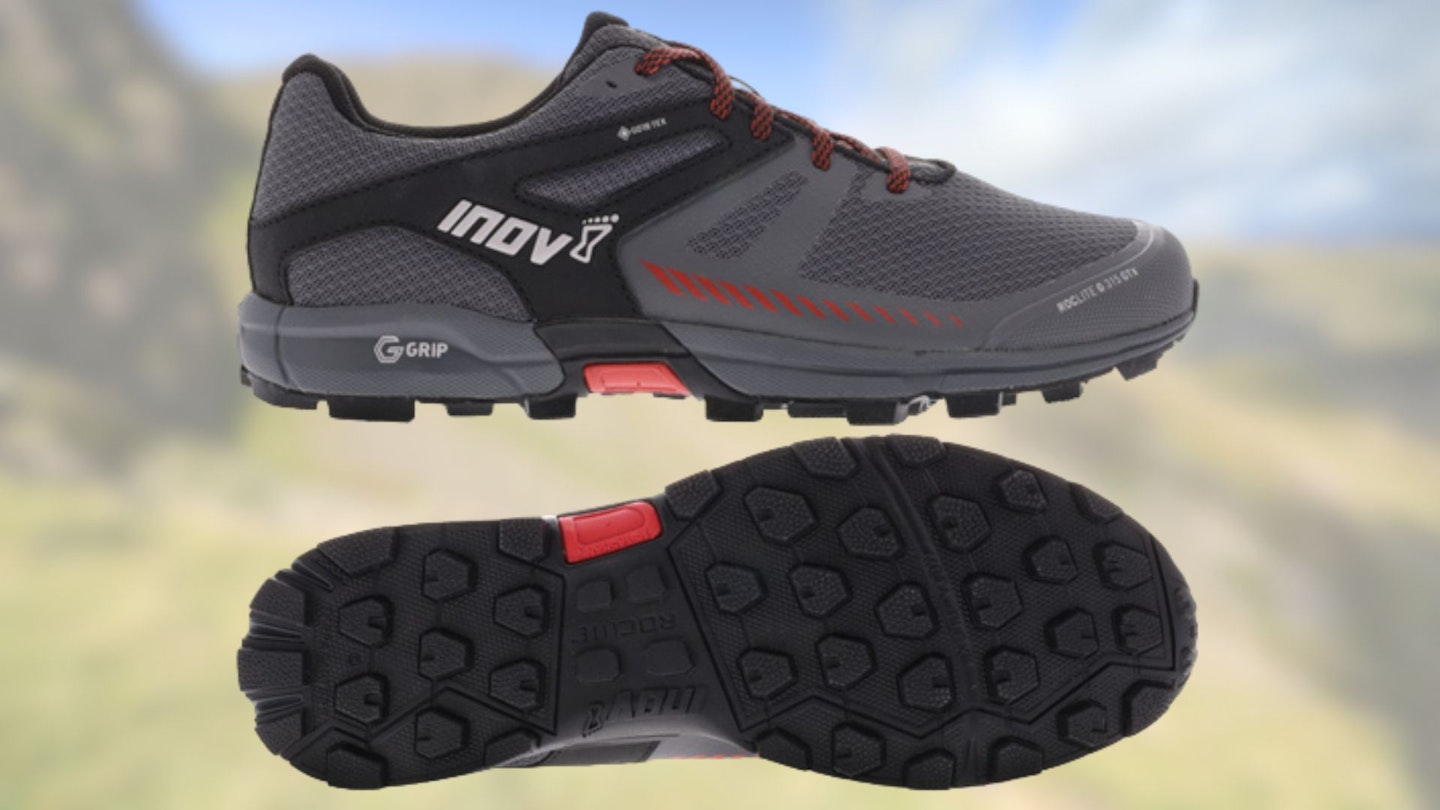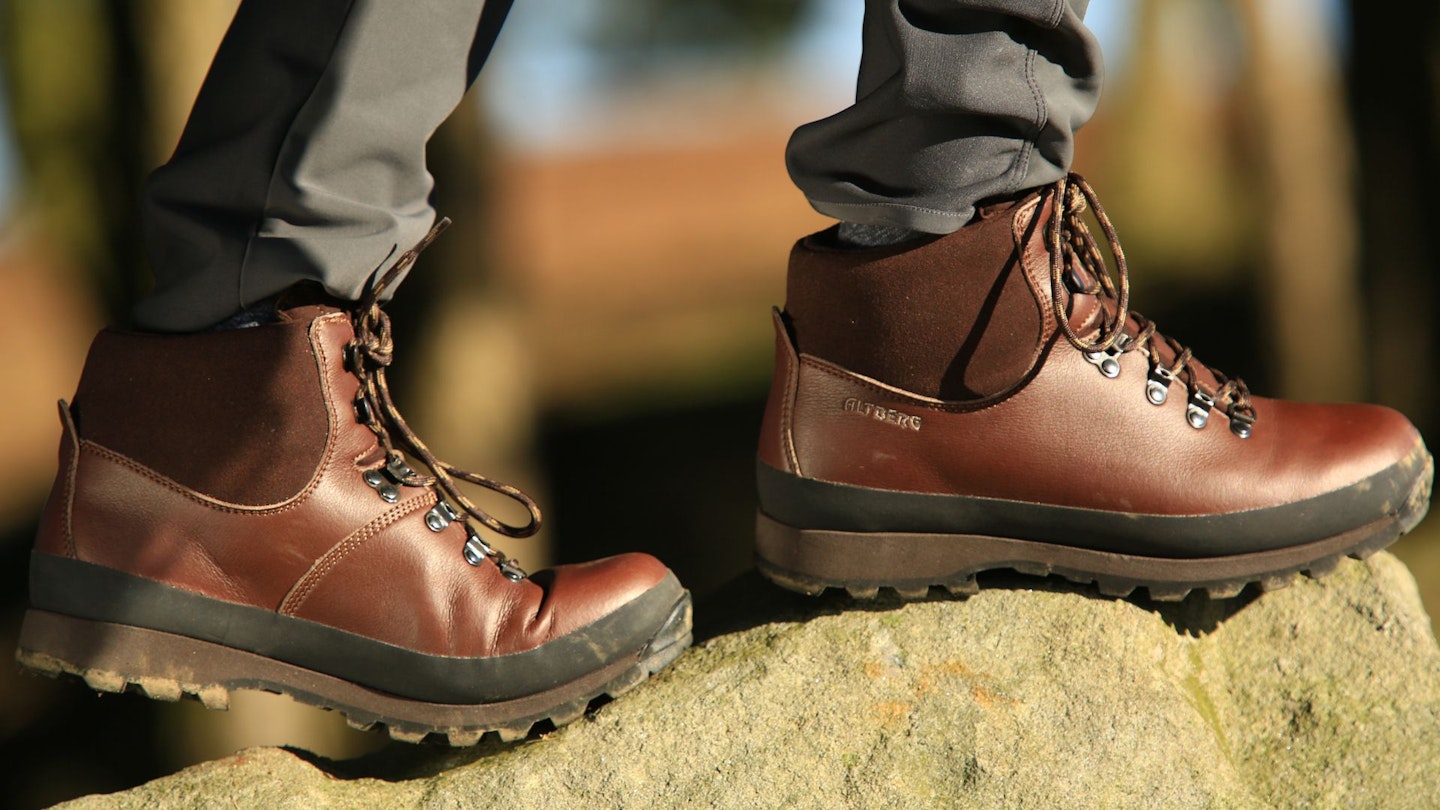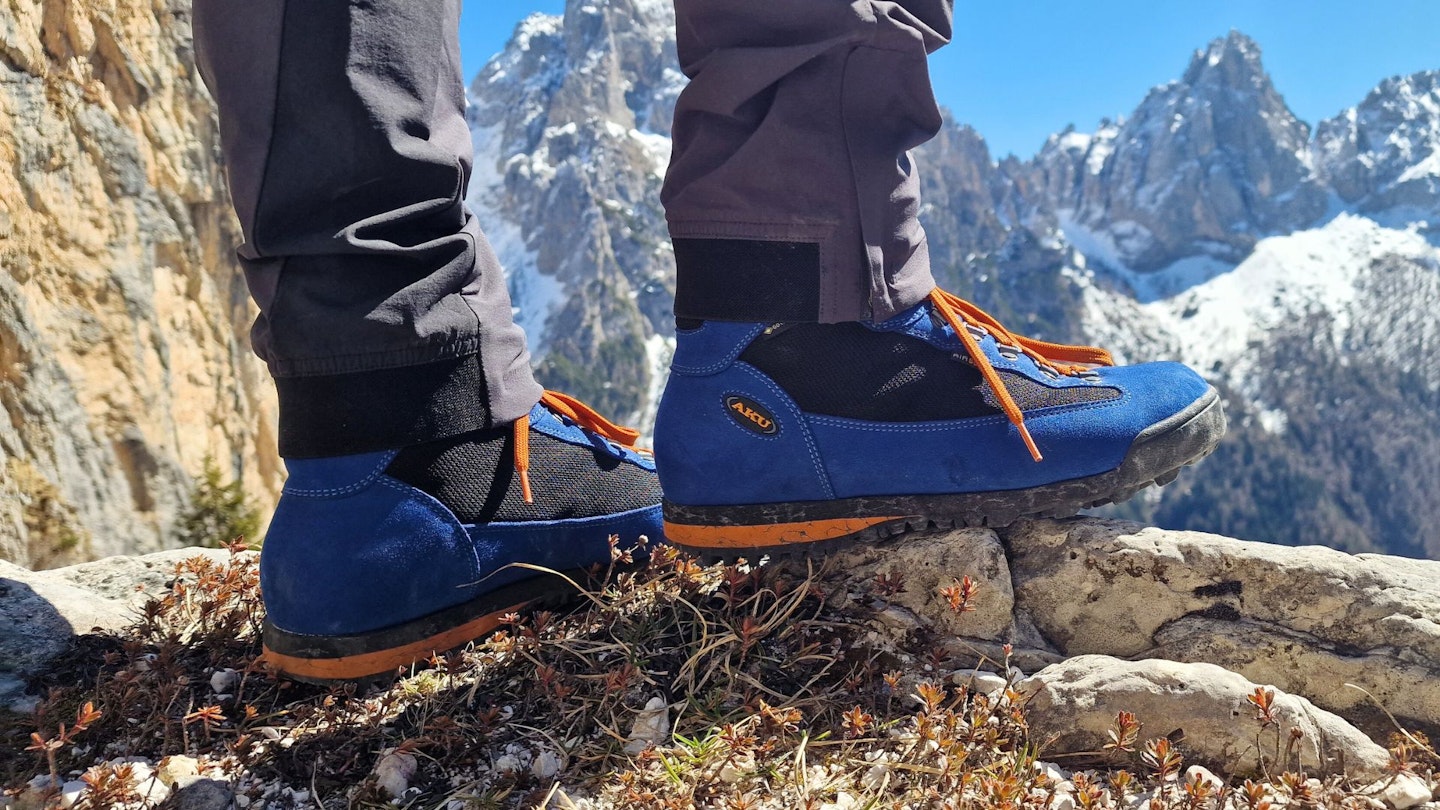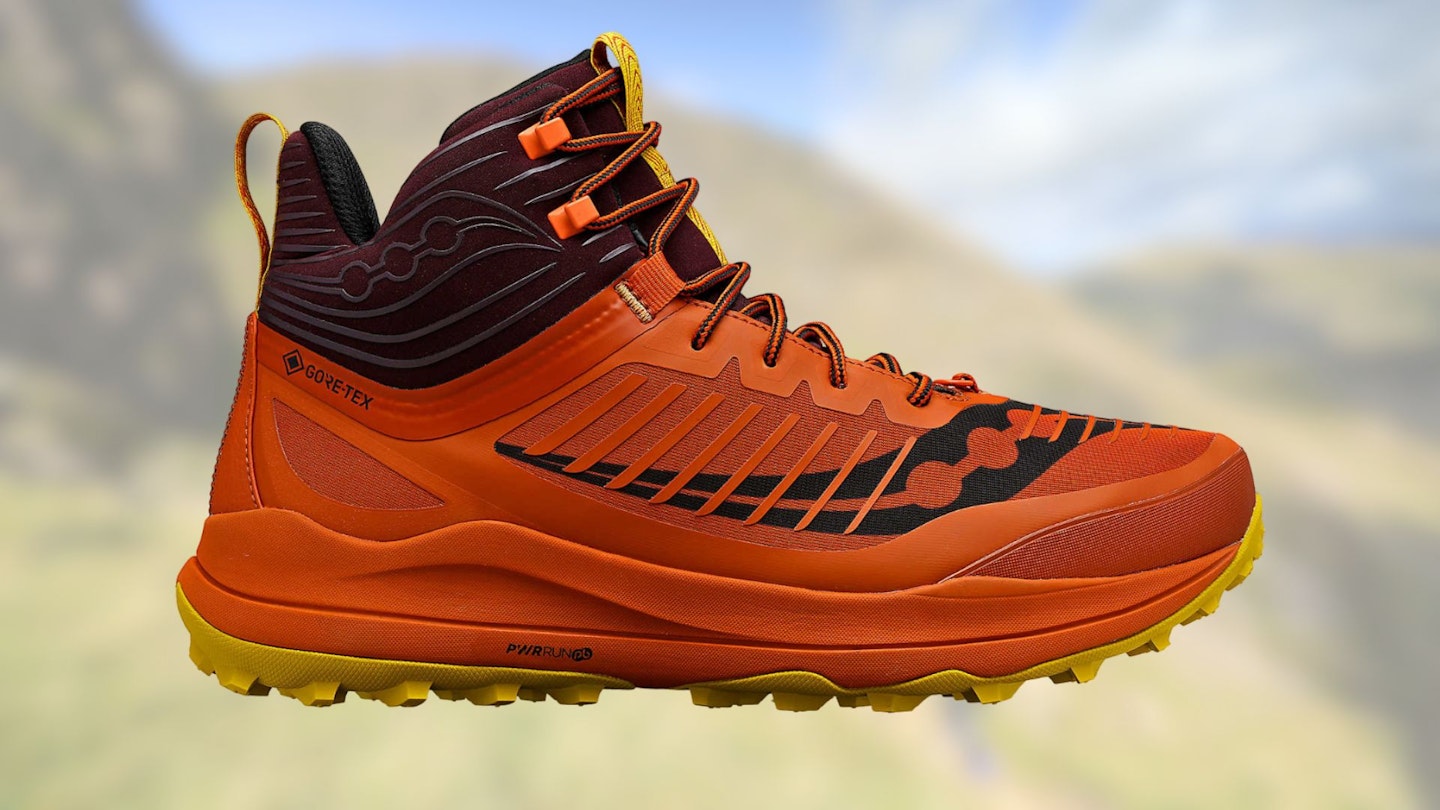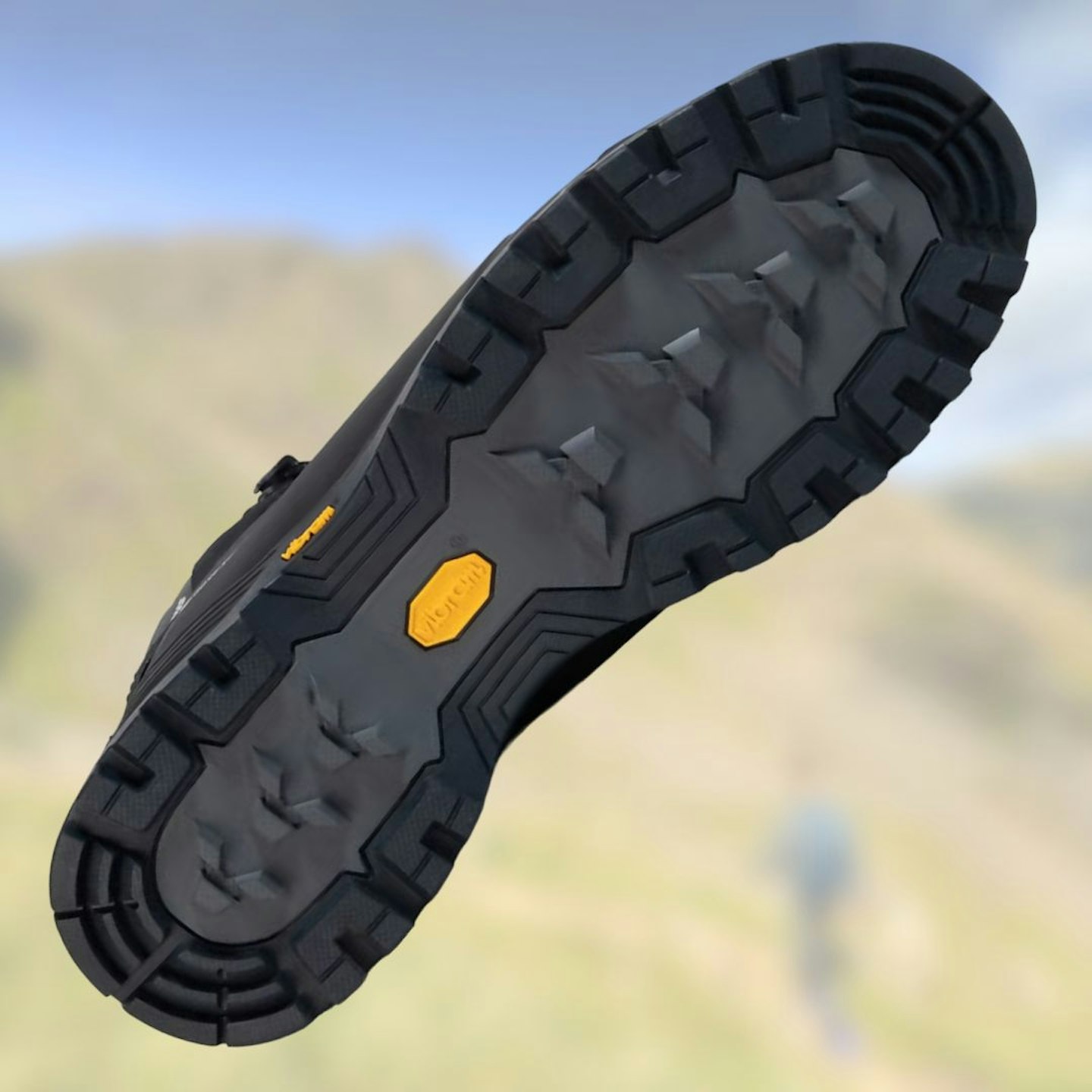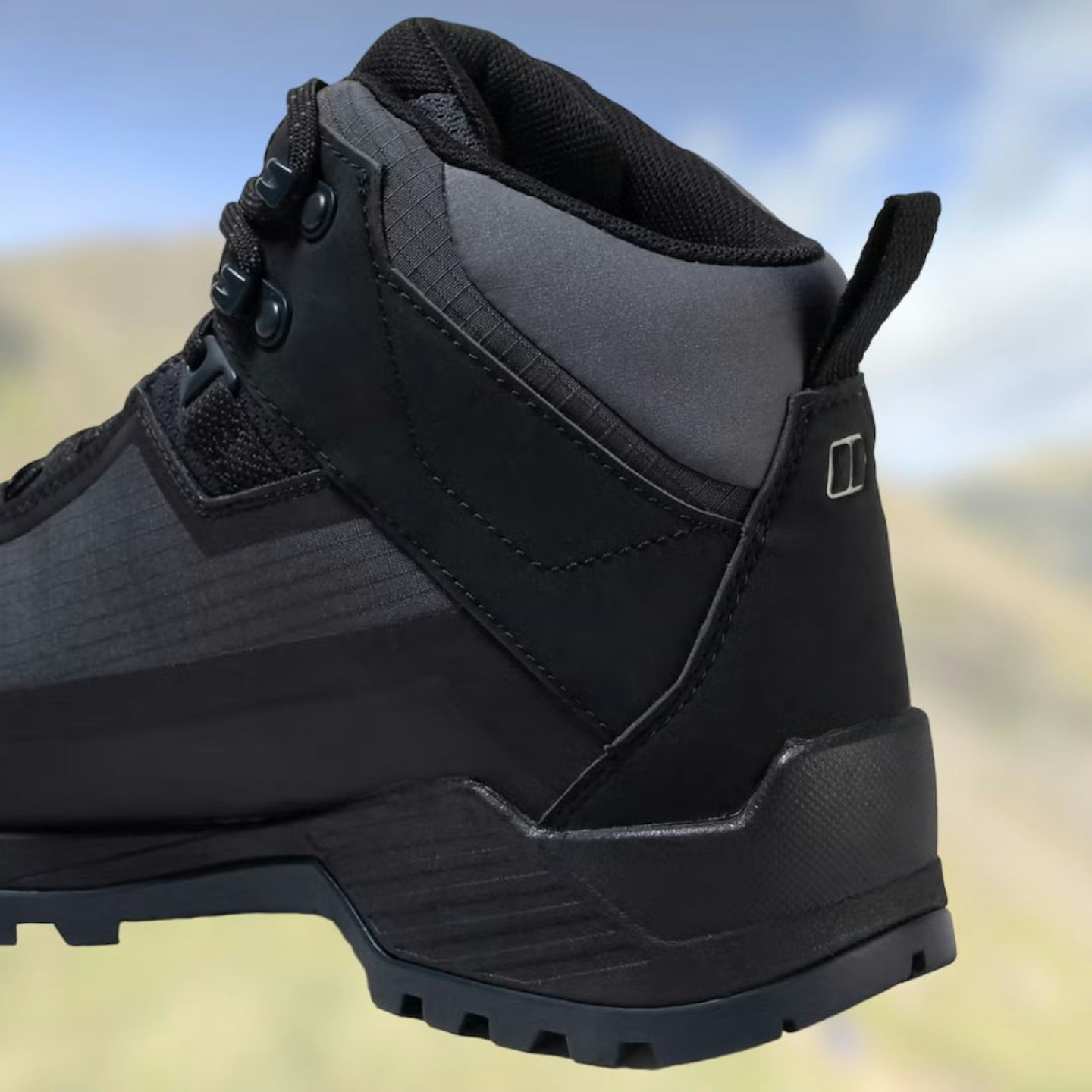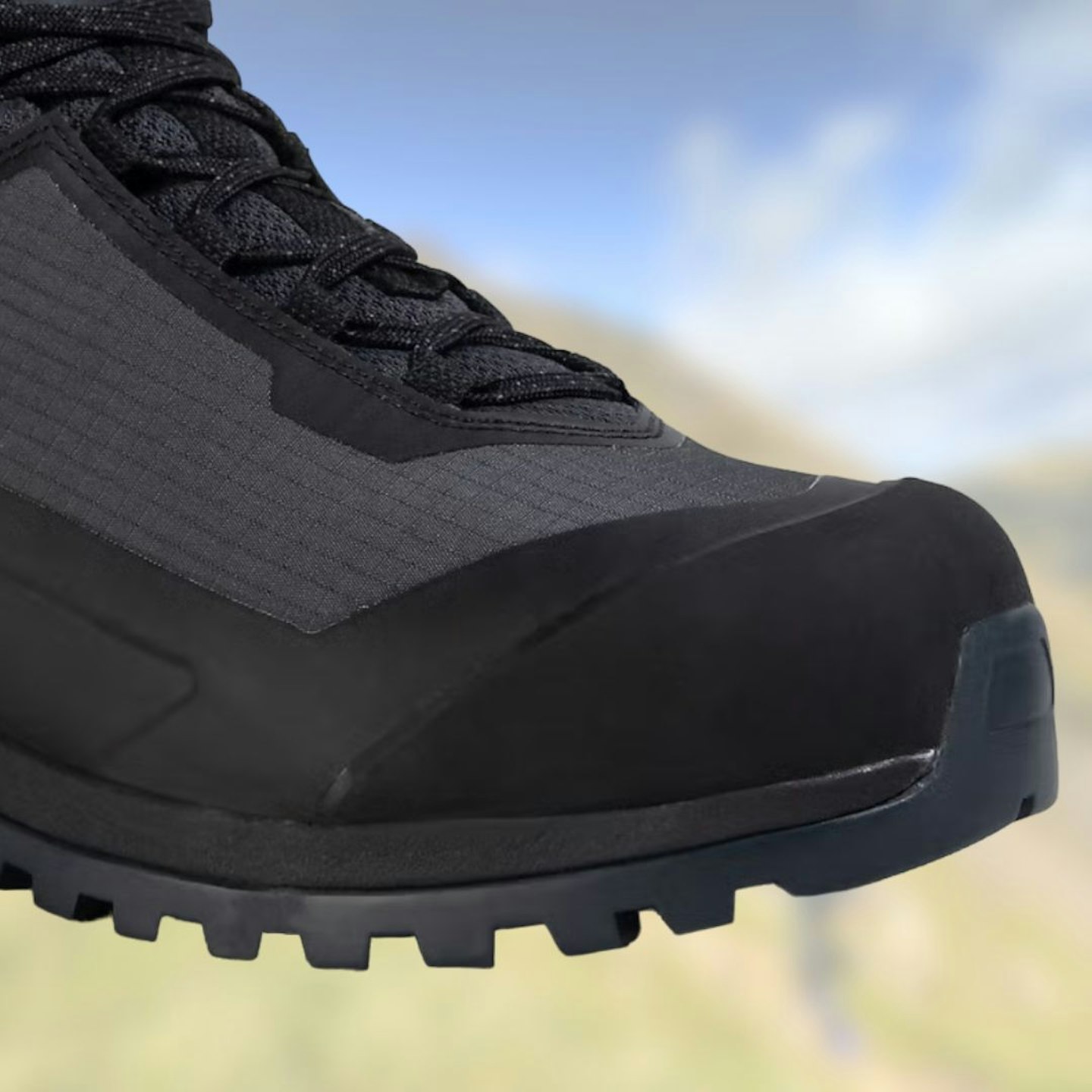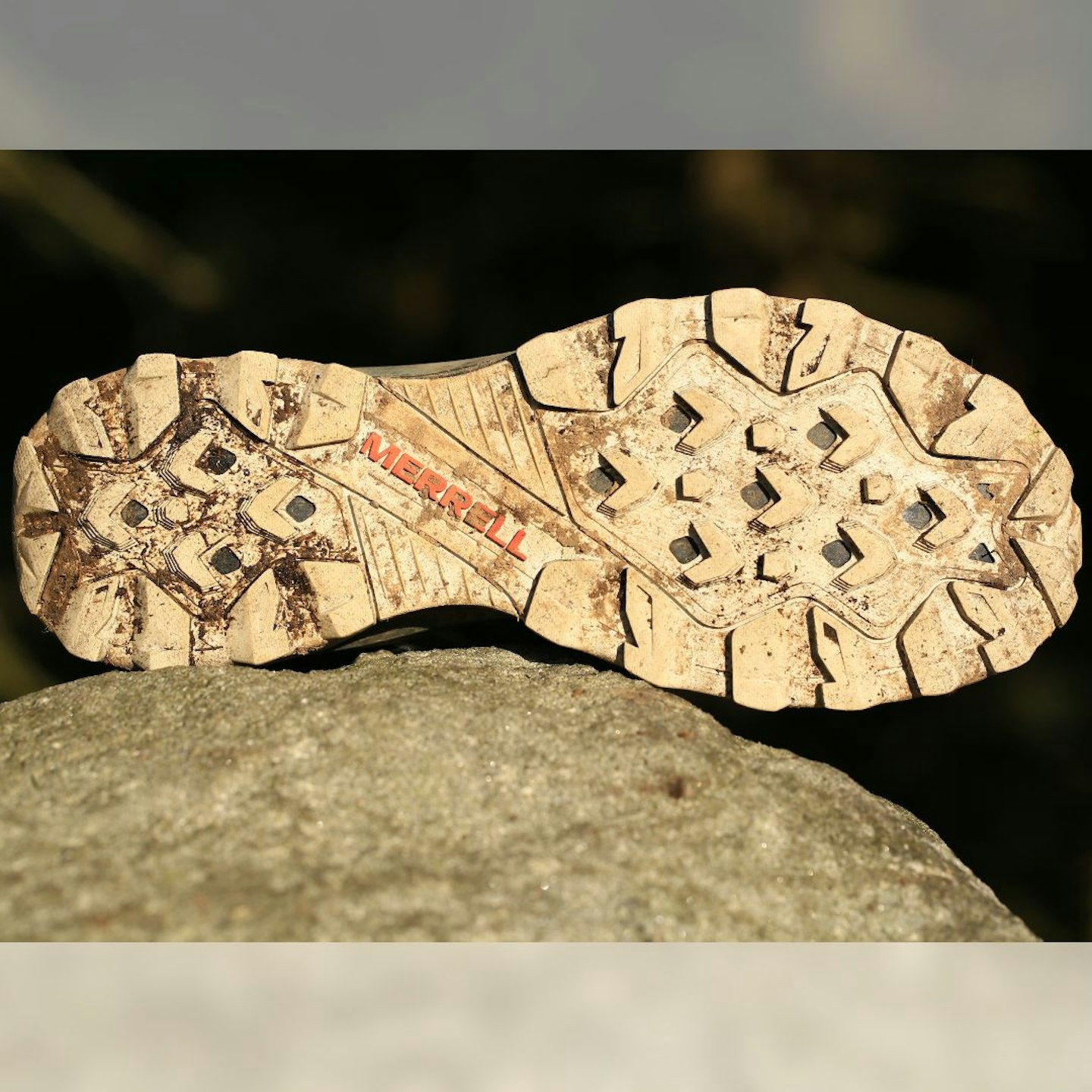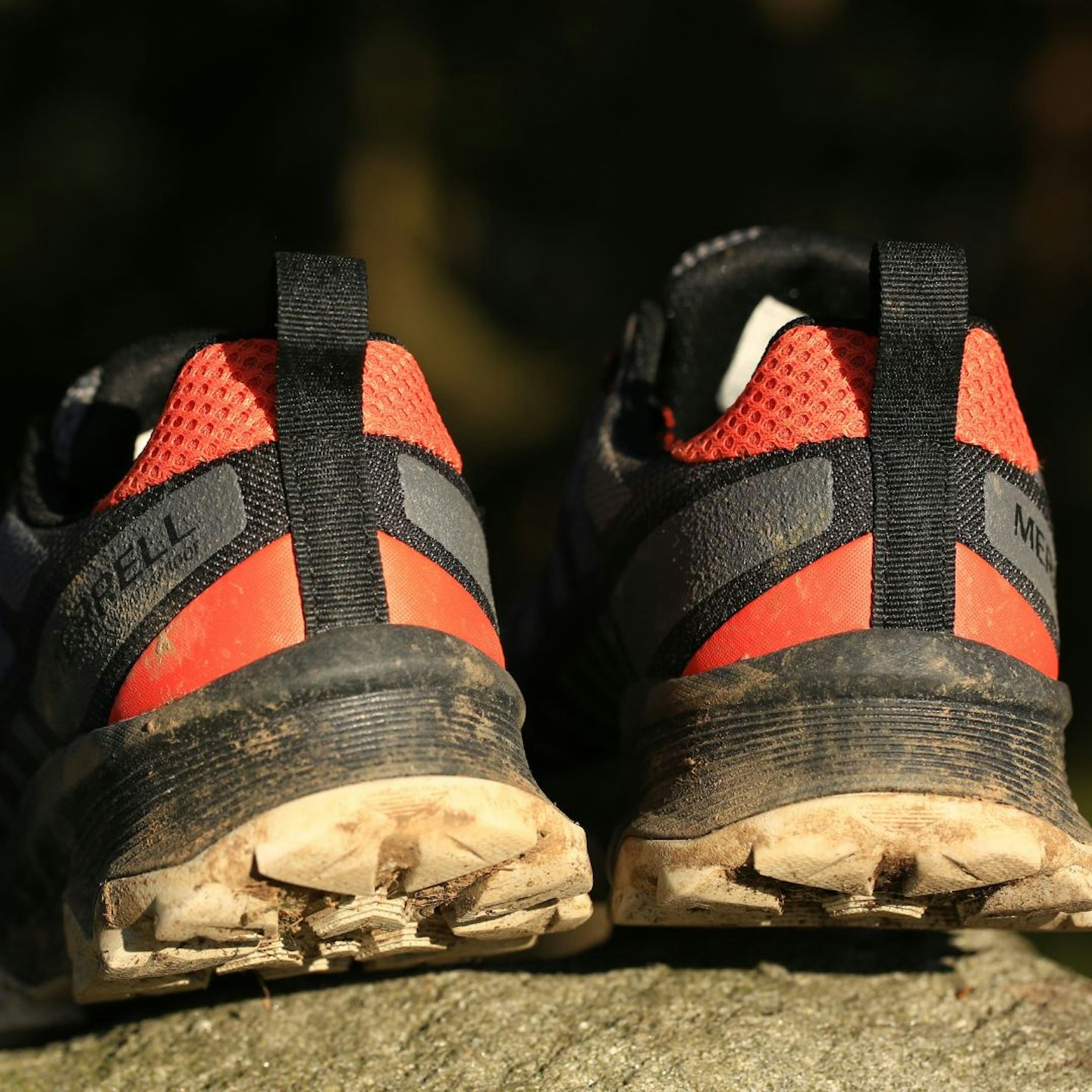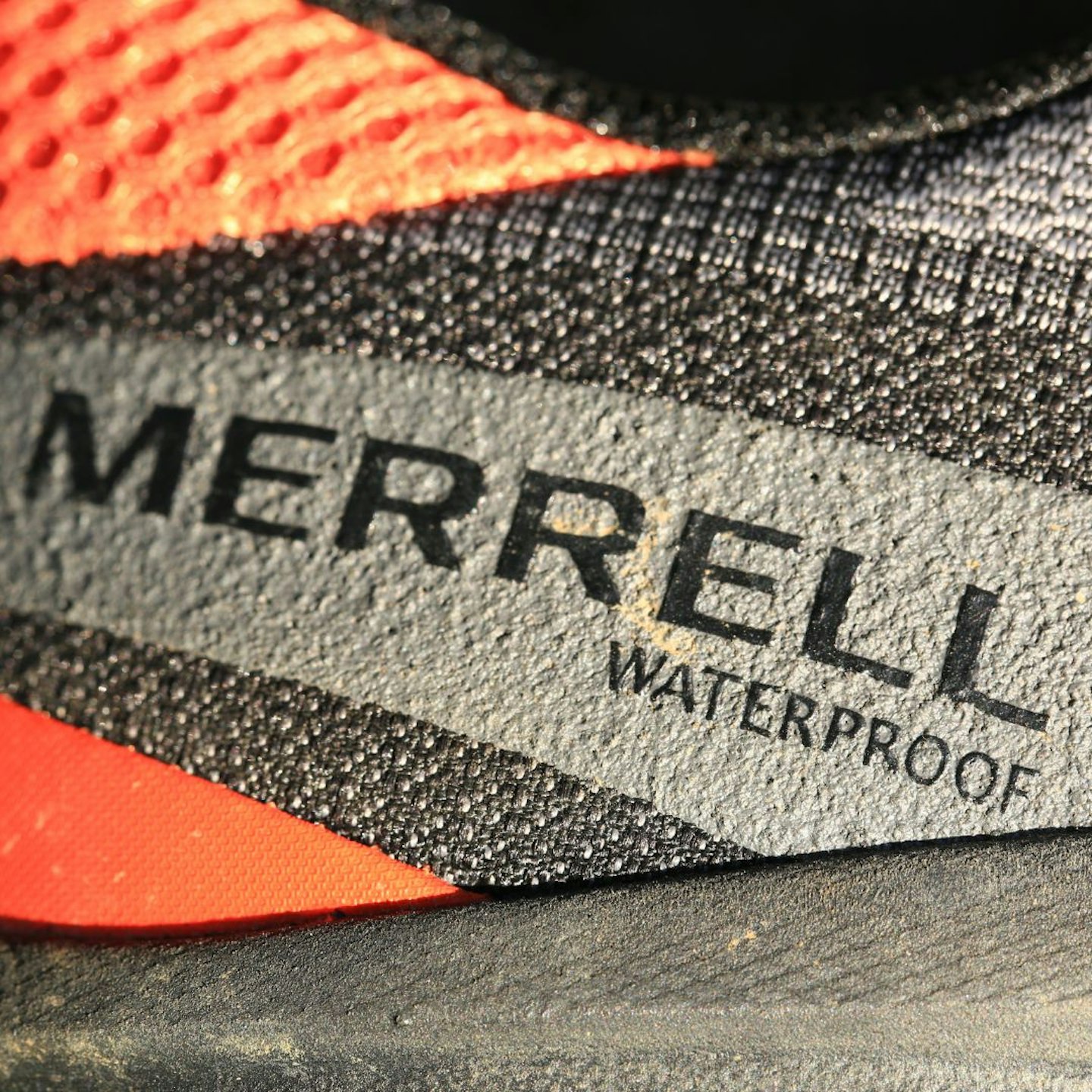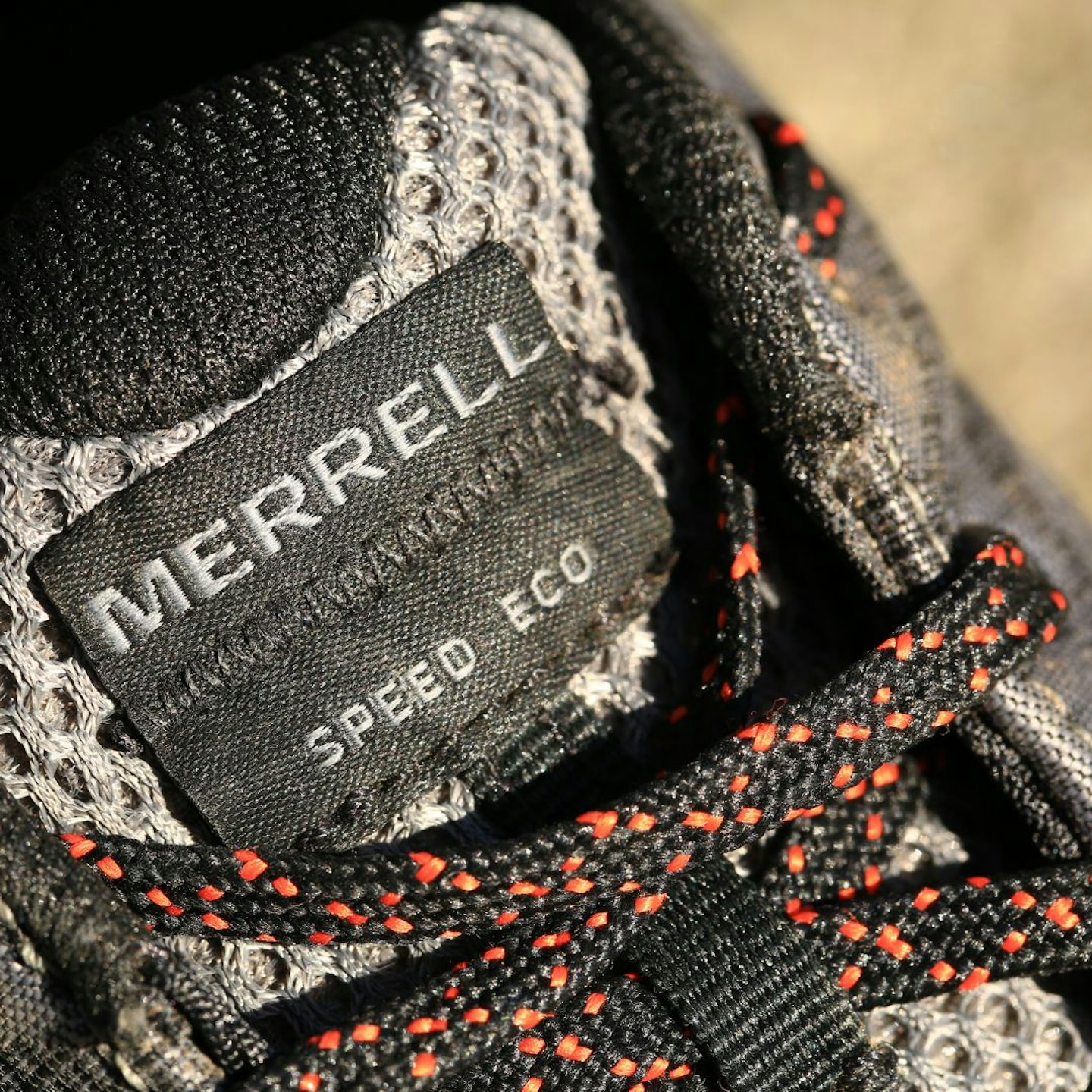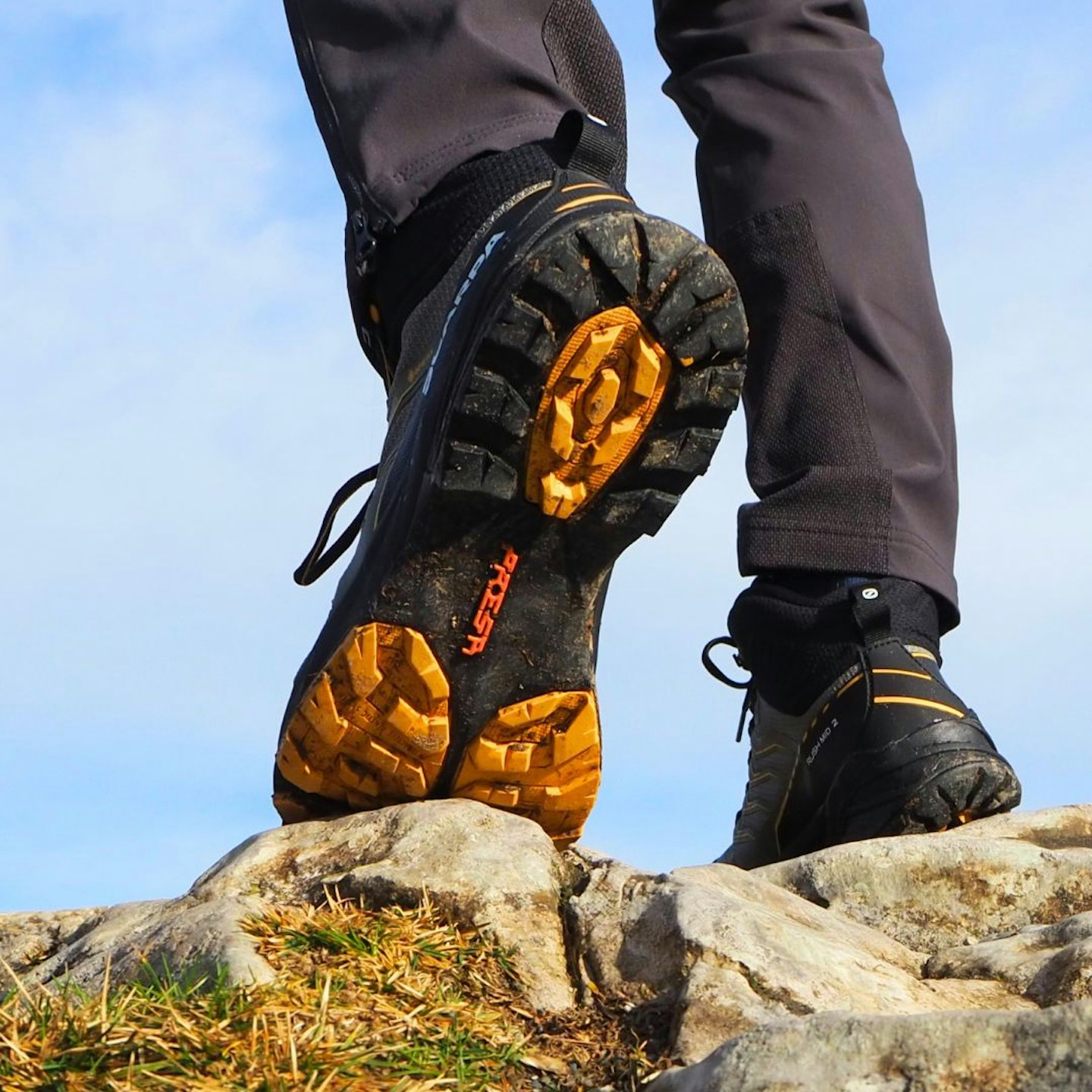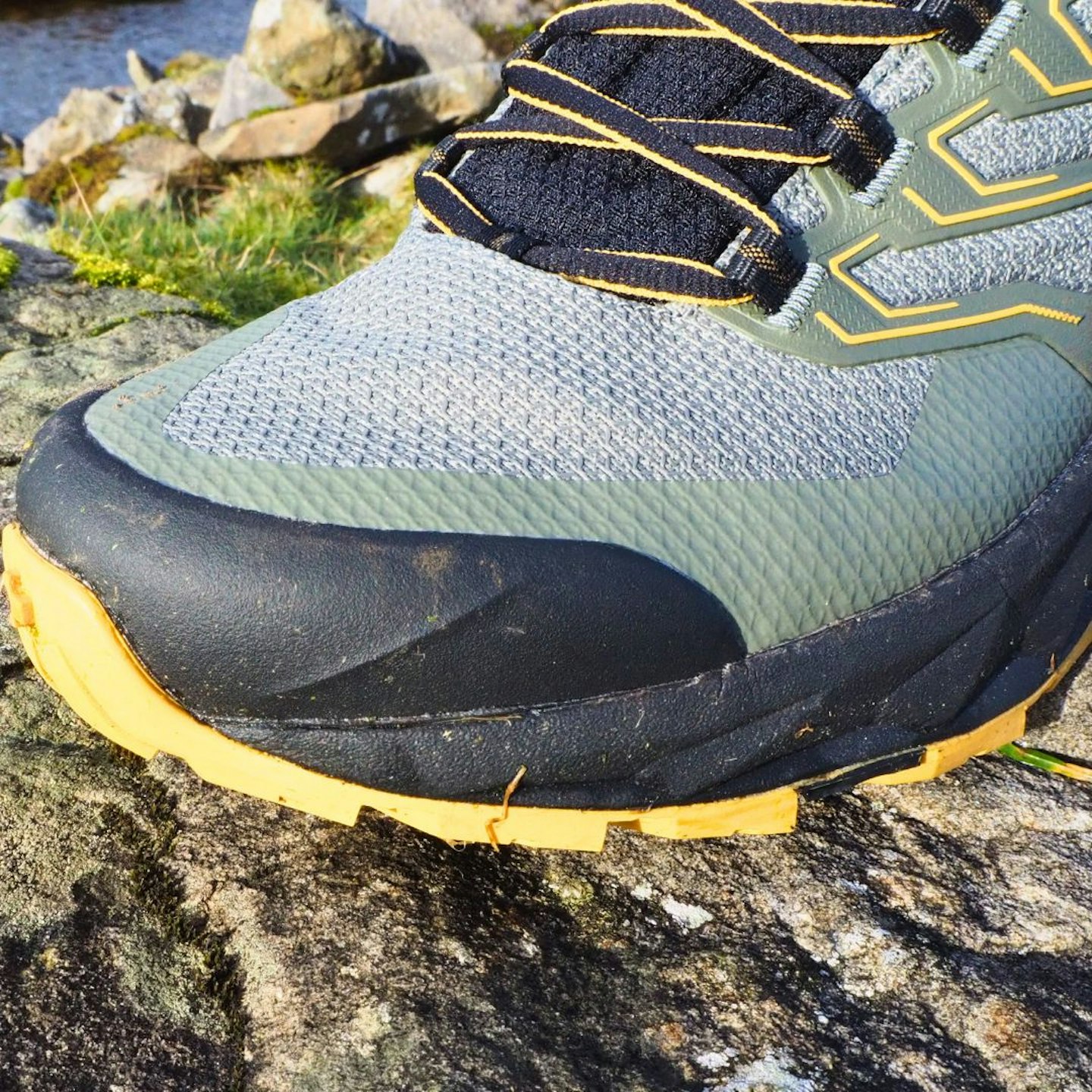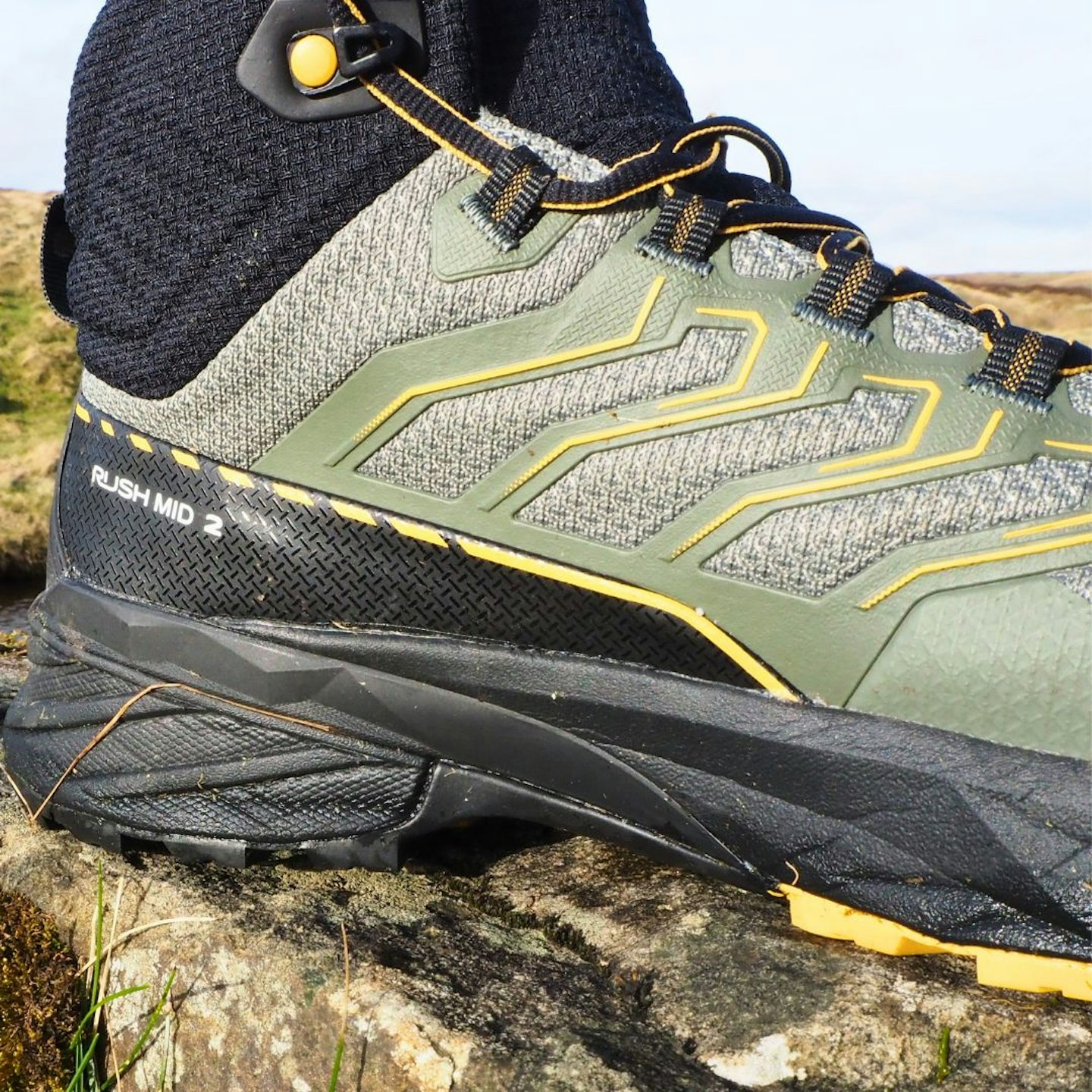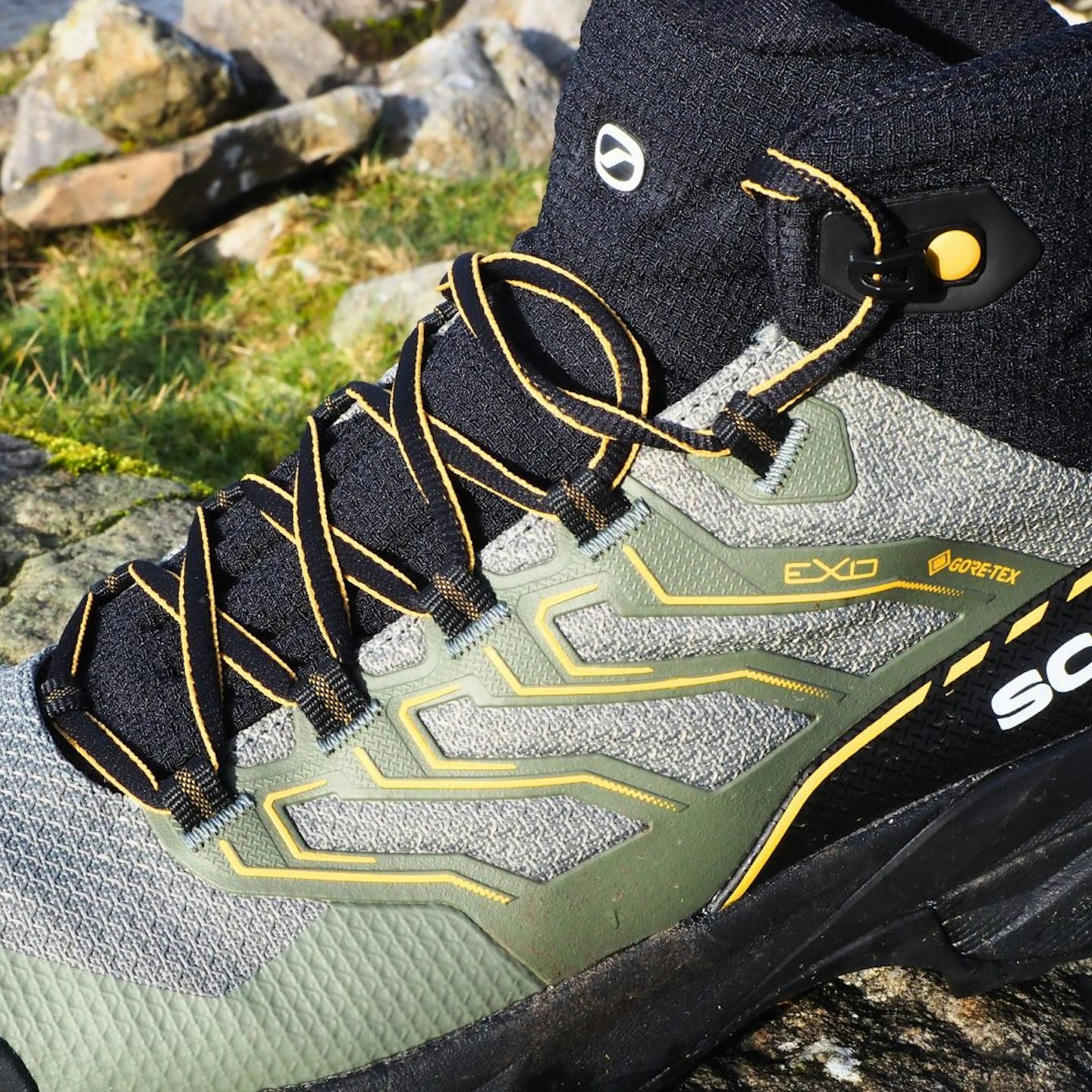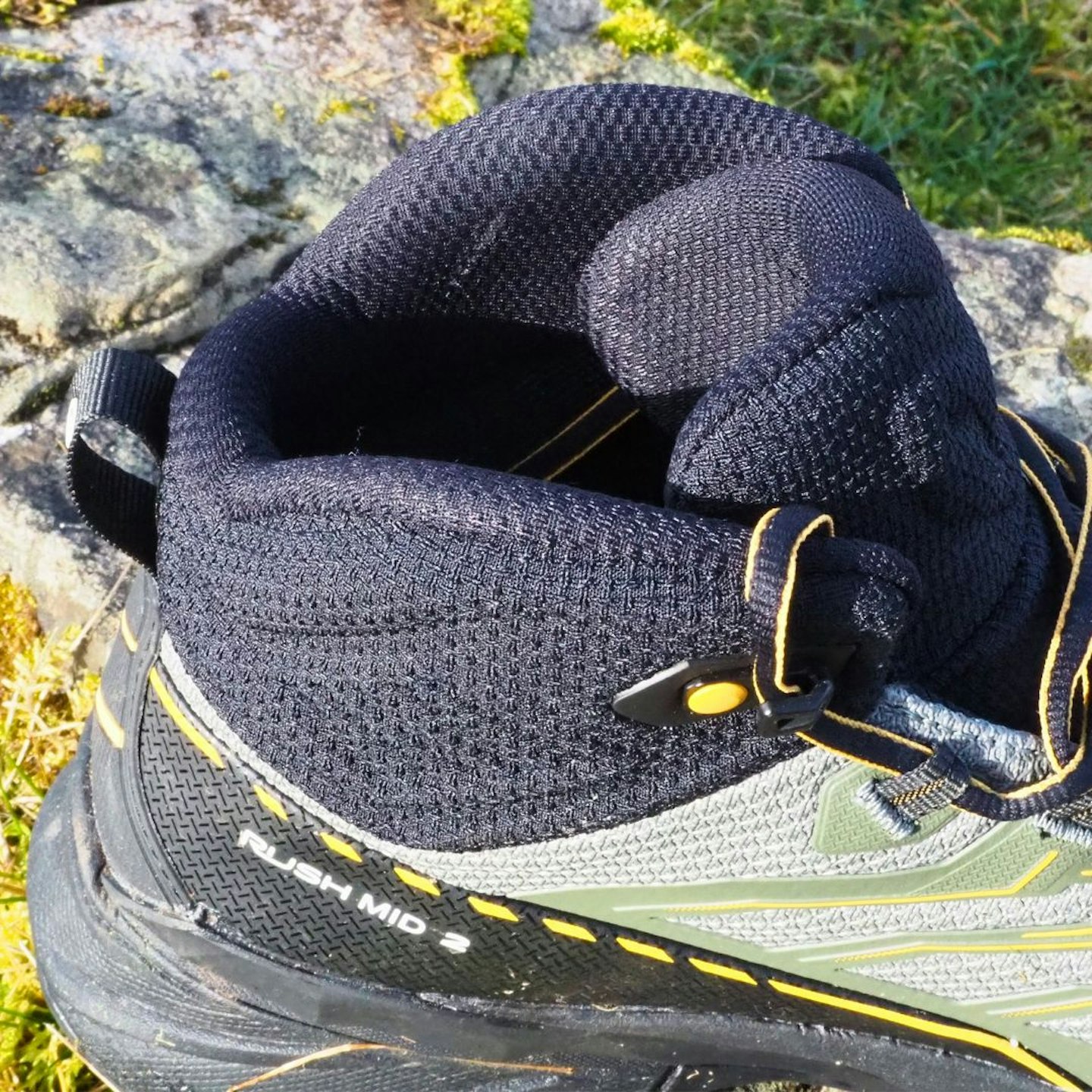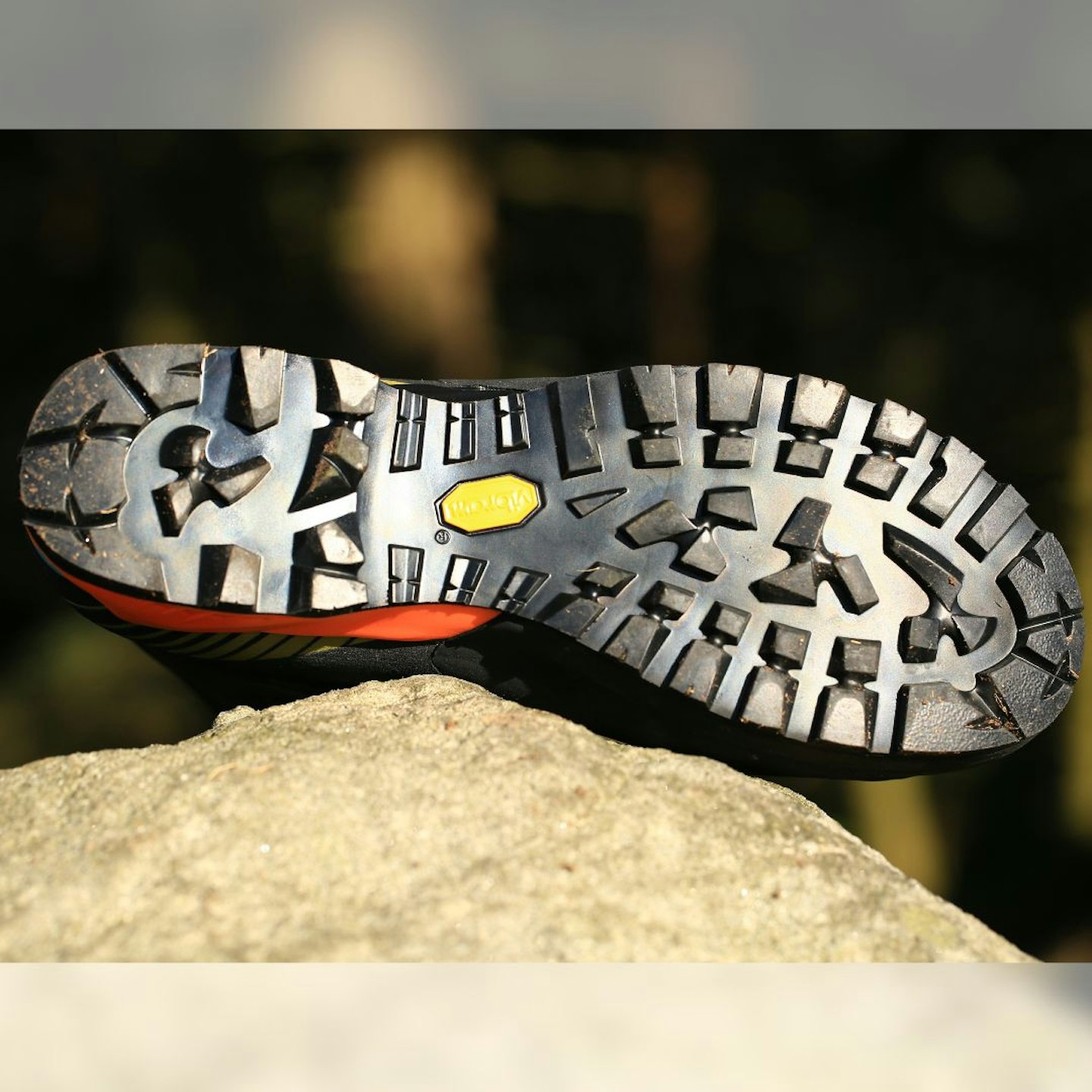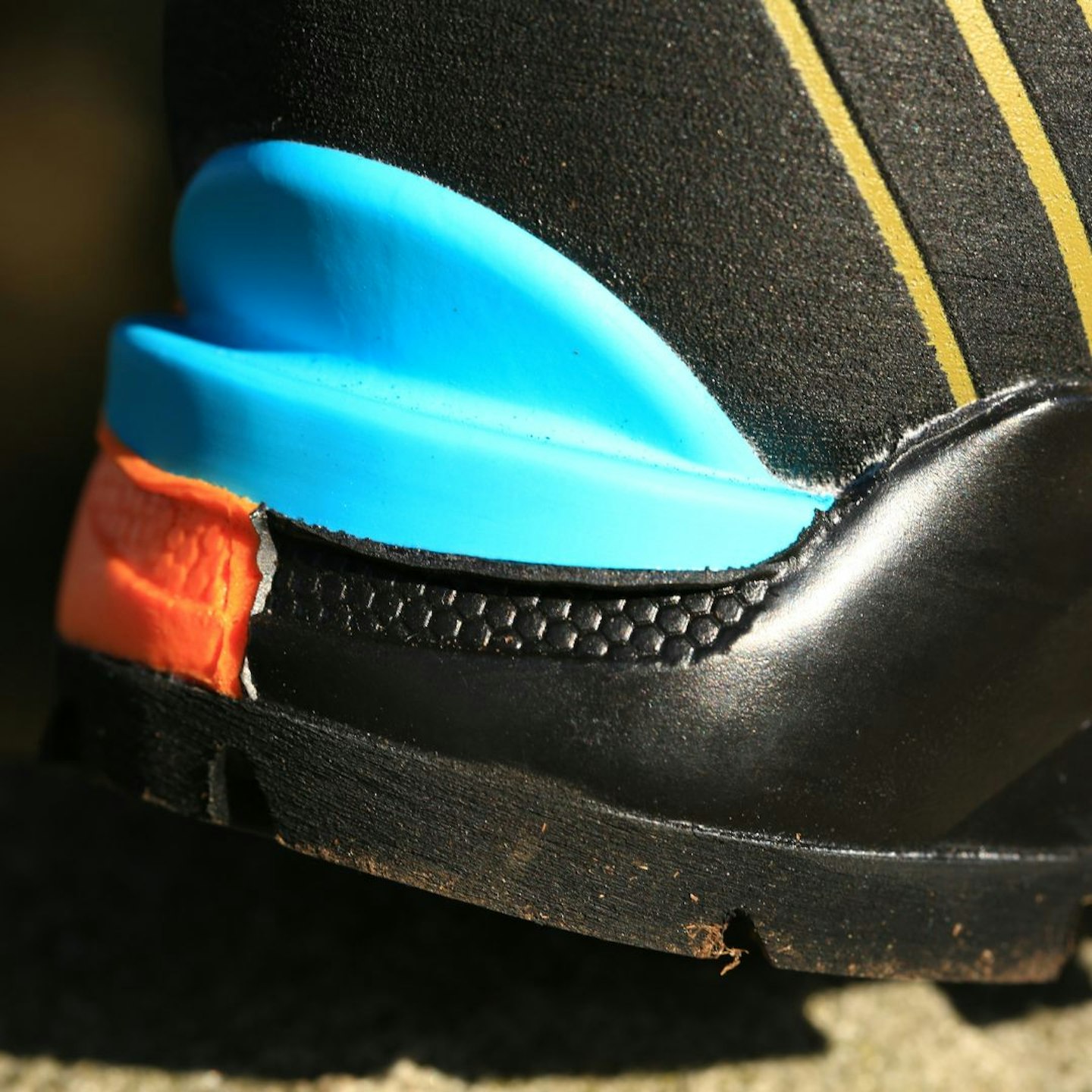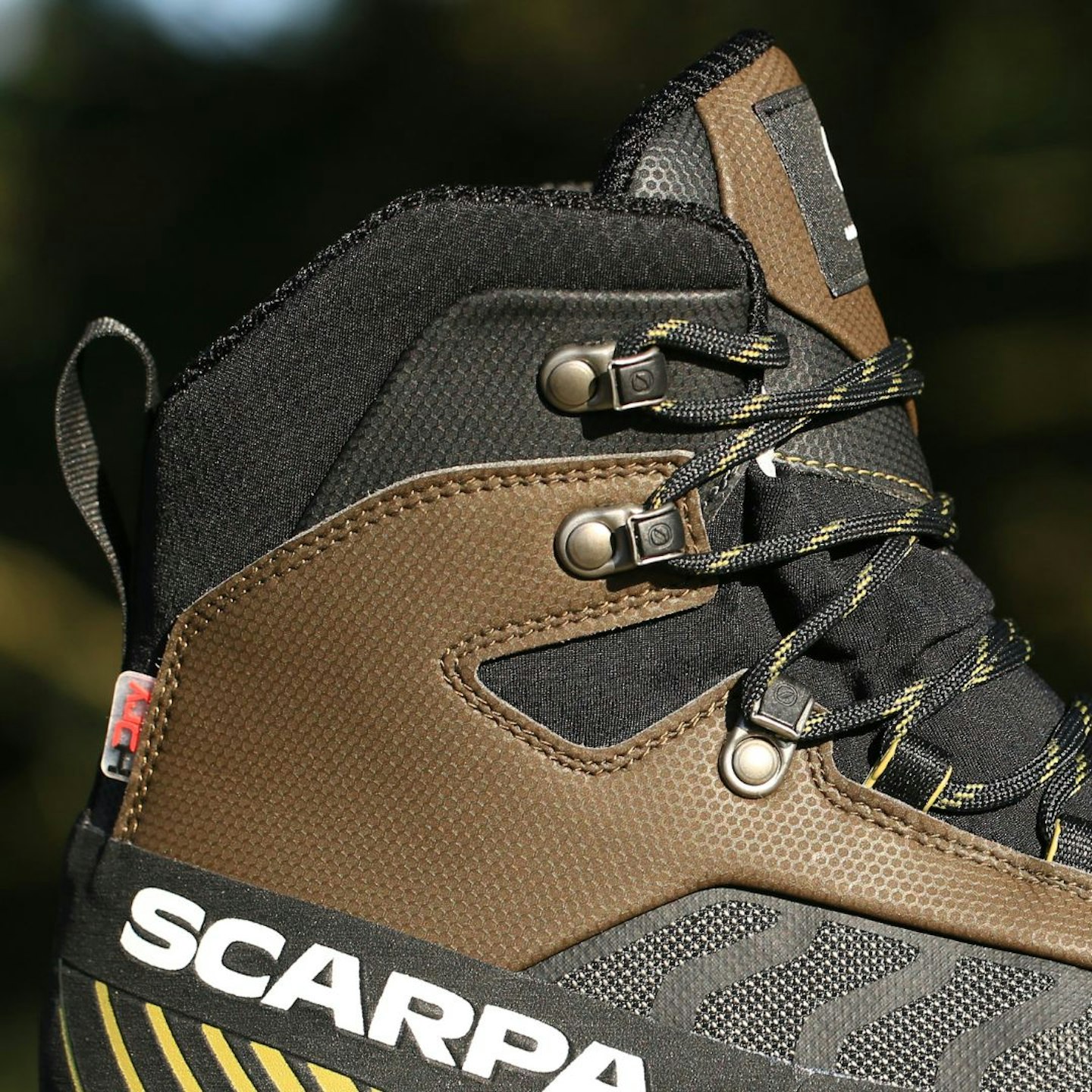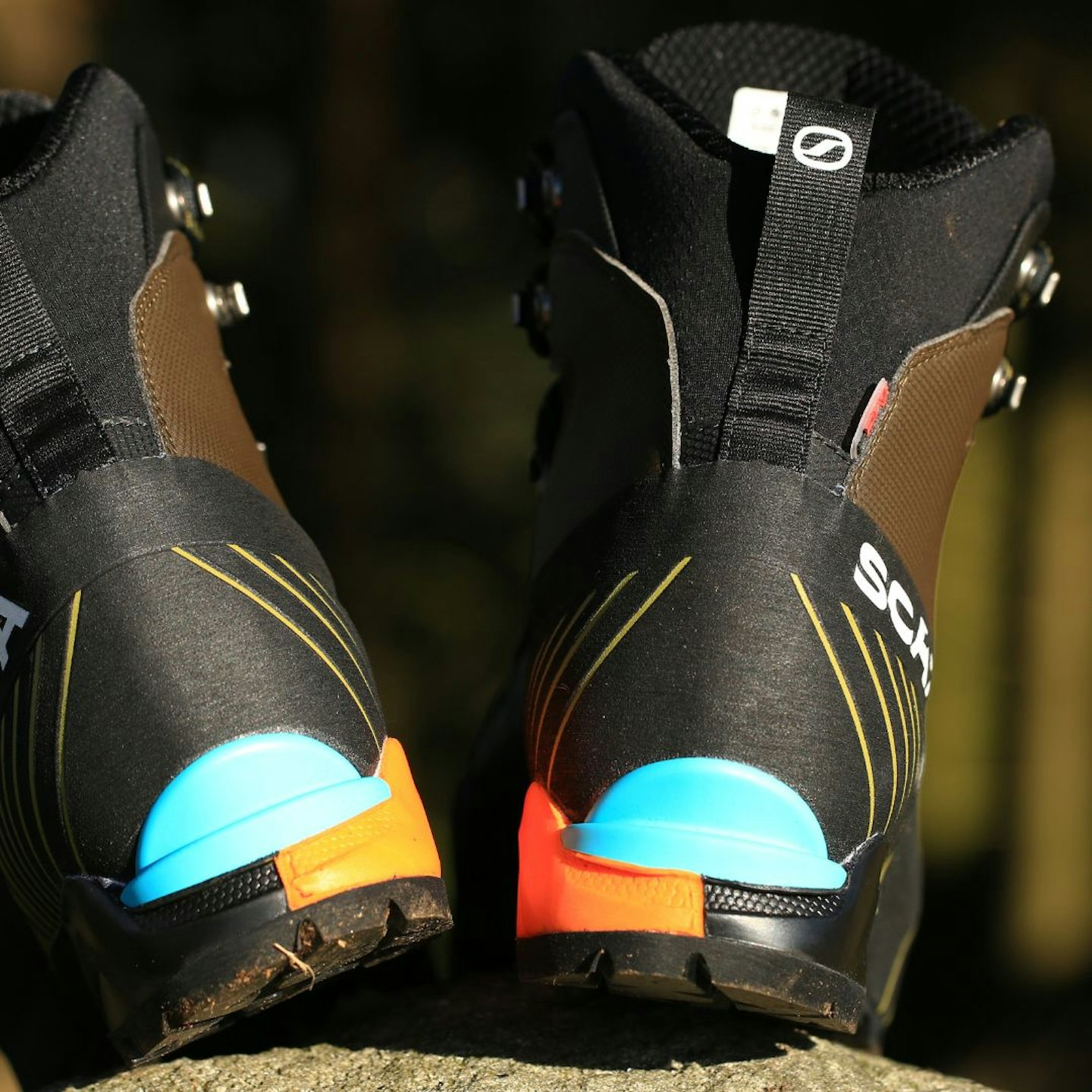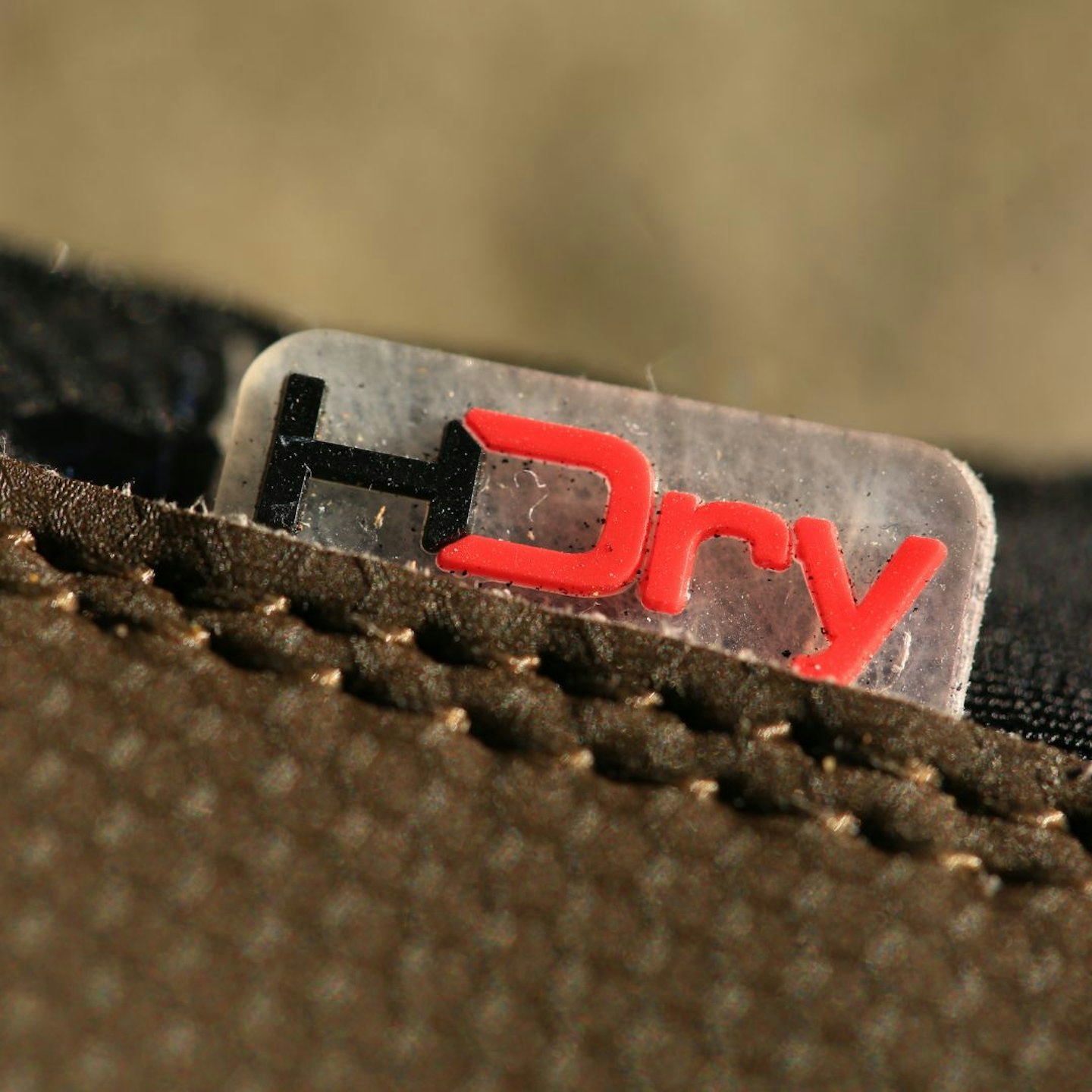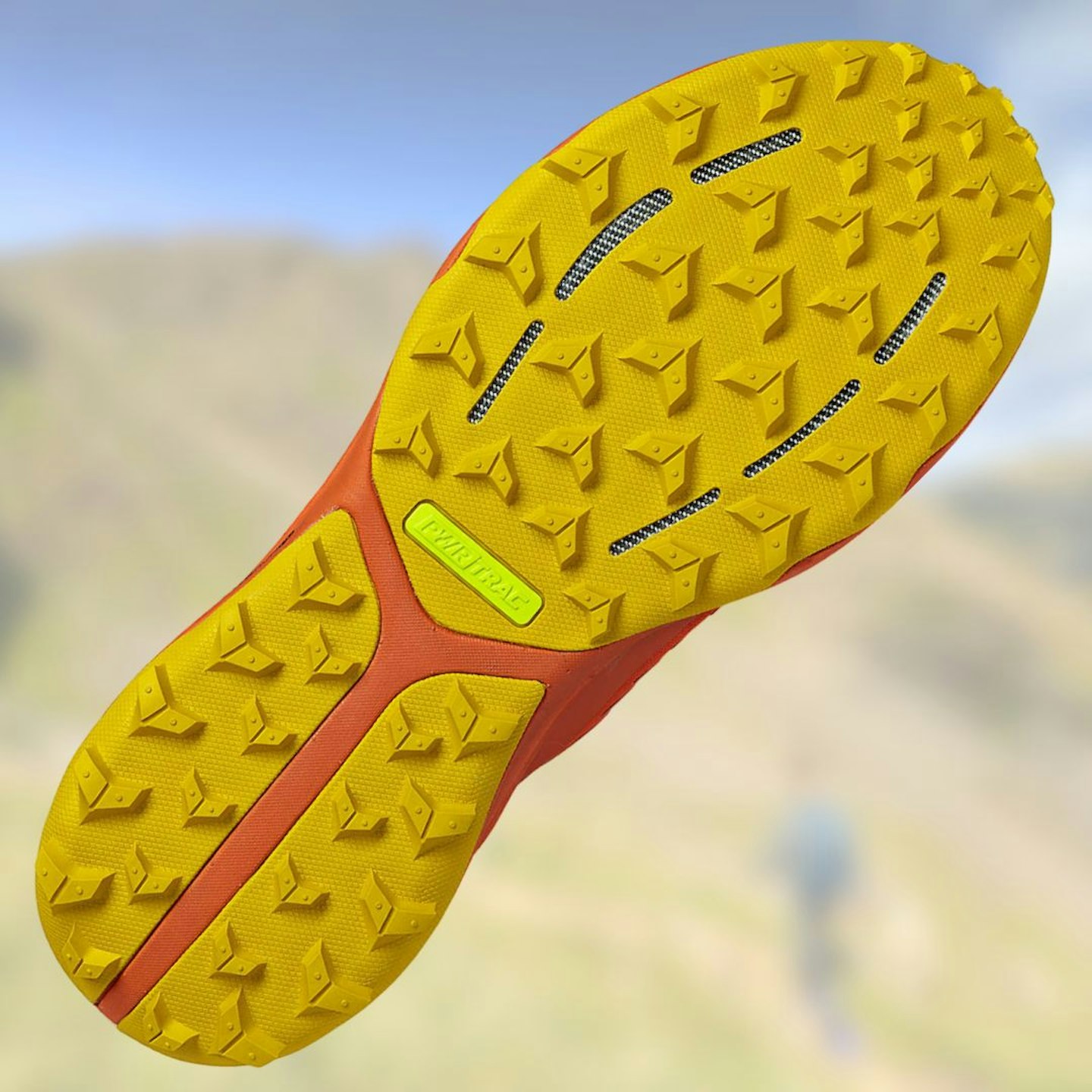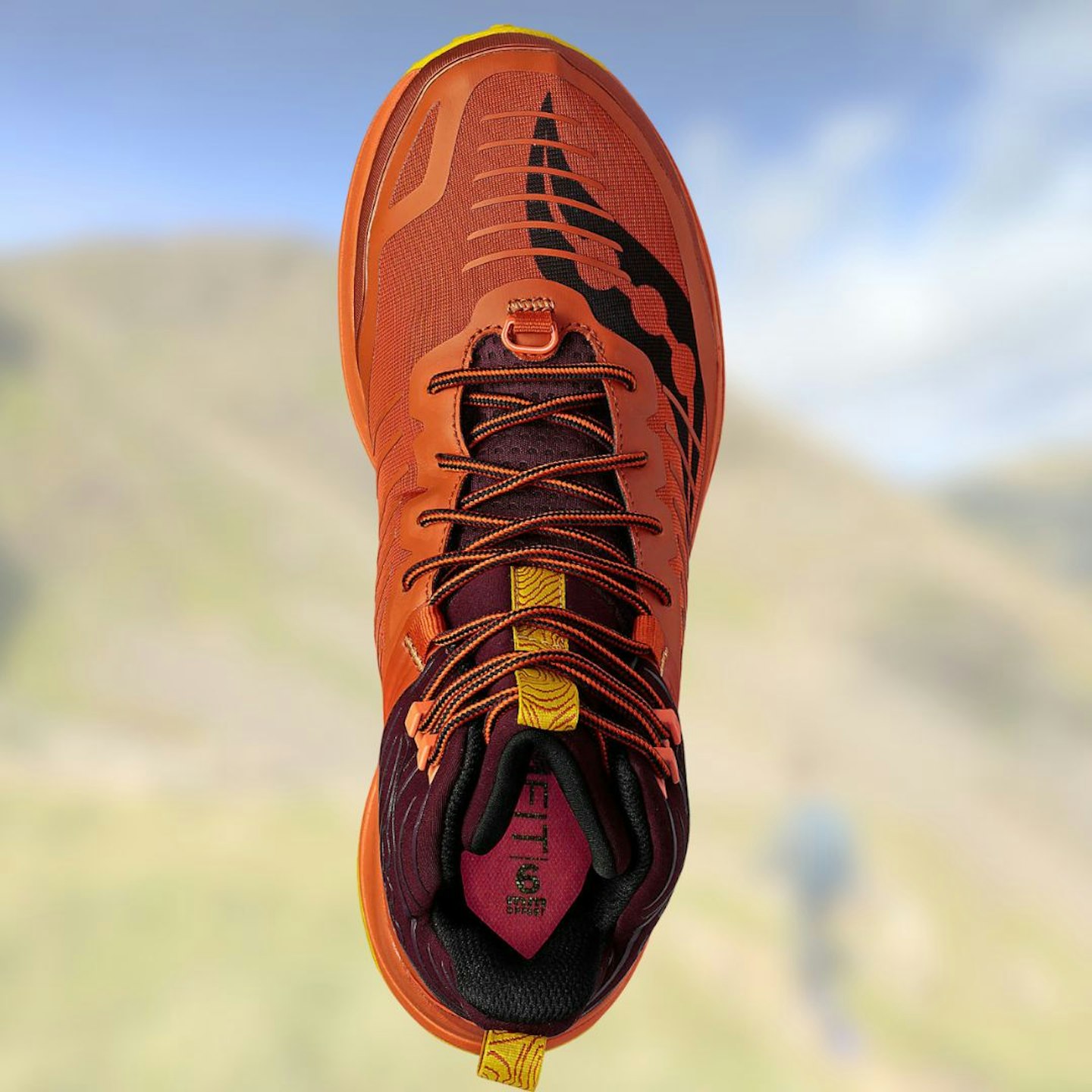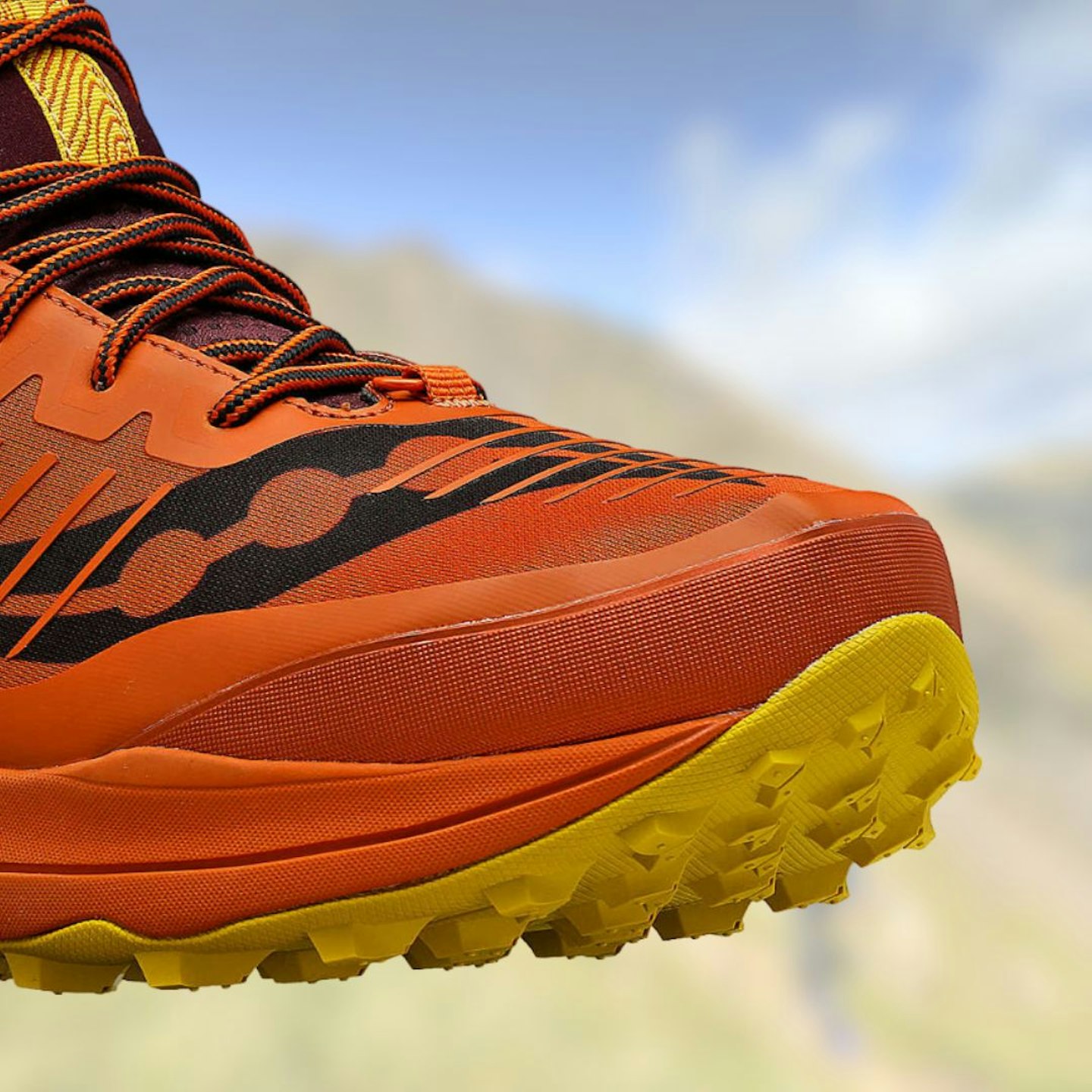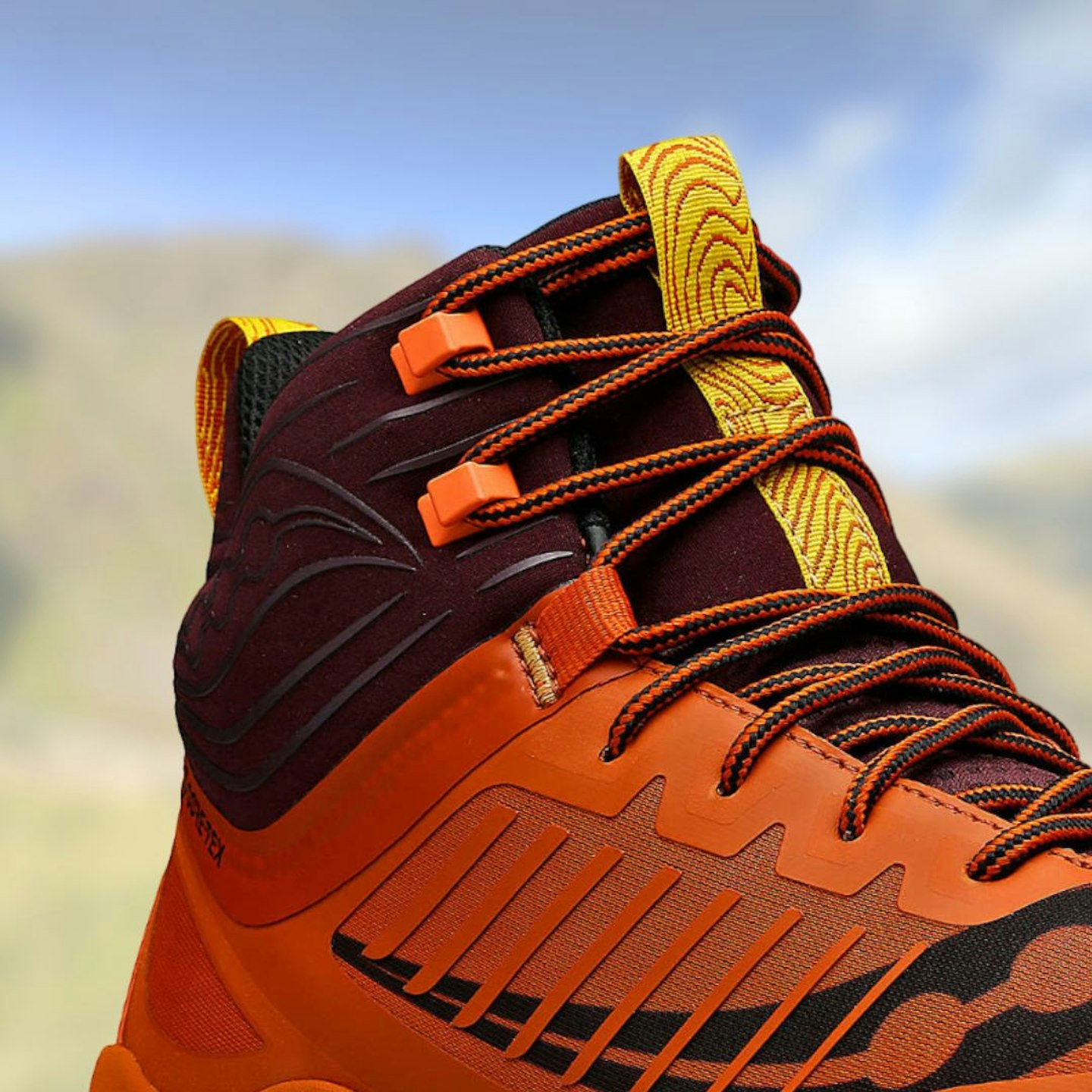For a long time, opting for vegan or the 'eco' version of something meant an almost inevitable compromise in performance (or flavour for vegan food). These days, things have changed. Alongside tasty fake meat, there is now a decent range of vegan walking boots and shoes.
The availability of animal-free walking boots used to be scarce, just like women's-specific walking boots. It's taken long enough, but now things are going in the right direction. We've been on a mission to find a range of the most talented vegan outdoor footwear.
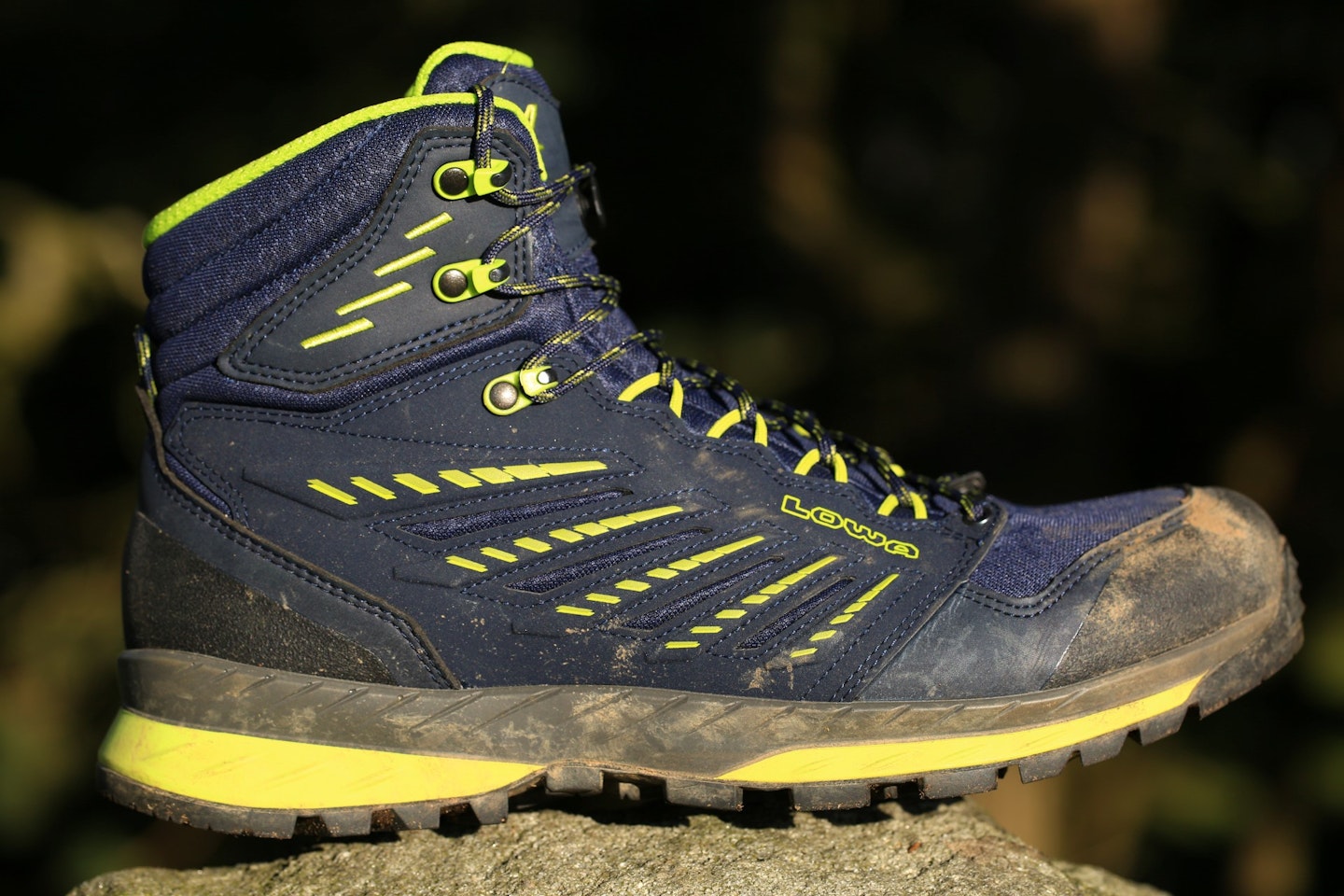
Although the absence of animal products is the common characteristic of vegan hiking footwear, it shouldn't be a defining trait. It's not an excuse for sub-par performance, and we hold vegan hiking footwear to the same high standards as we do to all walking boots and shoes.
What are the best vegan walking boots of 2025?
We wanted our shortlist to be broad and inclusive. Therefore, we've recommended a range of top-performing vegan walking boots that range from lightweight hiking shoes to crampon-compatible mountain boots.
Best vegan walking boots reviewed:
The Deception Trail GTX is a modern and inoffensive-looking boot that we found offers enough performance and protection for almost year-round use.
It's a 100% synthetic boot that uses the latest technology and components without any animal-based materials. At mid-ankle height, the Deception strikes the right balance between weight and performance, providing effective support for long days on the hill.
A Gore-Tex lining provides breathable waterproof protection, and superb grip on the trail is guaranteed by the Opti-Stud. A Vibram outsole and an Ortholite footbed provide additional cushioning and comfort.
Berghaus is well known for its Hillwalker and Hillmaster boots, which are reliable leather models that are suitable for most British hikes. The Deception Trail GTX is more of the same, just in a vegan iteration.
Check out the women's version here
Pros
- Quite good value
- Excellent grip
- Suitable for most hiking trips
Cons
- Mid-height doesn't provide full ankle support
| Weight (per boot) | 512g |
| Upper | Synthetic w/ Gore-Tex lining |
| Sole | OPTI STUD Vibram |
| Men's sizes | UK 7 - 12 |
| Women's sizes | UK 5.5 - 8 |
To date, The Speed Eco is the brand's 'most sustainable, eco-friendly hiking shoe'. However, while Merrell footwear does contain increasing amount of recycled material, which is a good thing, Merrell and its sibling brands owned by Wolverine Worldwide, don't rate very well in indpendent transparency reports (published by Fashion Revolution).
The Speed Eco is a master of trails and hard-packed surfaces, thanks to its partially (30%) recycled outsole. Although, it doesn't have a chunky or hardened toe cap for protection. And we found the Speed Eco struggles with oozy mud just as much as it excels on gravel and rock.
As a hiking shoe, there isn't the ankle support you get from a mid or boot. The trade-off, of course, is that you feel a lot more agile. And we found that lacing the Speed Eco heel-lock style makes a big improvement. If you do want a higher cut though, you'll be pleased to learn there is a Speed Eco Mid.
Merrell's waterproof membrane is as reliable as any other. But while the tongue is gusseted, only two-thirds of it is. So water can sneak in if you step into even moderate puddles.
Check out the women's version here
Pros
- High percentage of recycled content
- Lightweight yet protective underfoot
- Good value
- Shoe and Mid versions available
Cons
- Not for super technical terrain
- Minimal toe protection
| Weight (per shoe) | 340g |
| Upper | Recycled synthetic w/ Merrell Waterproof lining |
| Sole | 30% recycled Merrell outsole |
| Men's sizes | UK 6.5 - 14 |
| Women's sizes | UK 2.5 - 8.5 |
Scarpa's Rush 2 Mid GTX is so well-rounded for a lightweight hiking boot. We found it's very grippy over mixed terrain even when it's a bit muddy or boggy, thanks to Scarpa's magnificent Presa sole. And appreciate the small but noticeable durability additions.
These include the reinforced and stiffened toe, TPU strips on much of the upper, and a dual density midsole that doesn't compress over time. These details mean that while some rivals are even lighter than the Rush 2 Mid GTX, they certainly aren't as capable of fending off abrasion on the trail.
This is all relative of course. The Rush 2 Mid GTX still isn't a long lasting as heavier or leather models, but is decent for a boot weighing around 400g.
The Rush 2 Mid GTX certainly has the agility and low weight of a shoe rather than a boot. We found that the mid-height cuff offers plenty of padding but little support. The fit is on the narrower side too, which won't suit some.
The Gore-Tex Invisible Fit lining makes the Rush 2 Mid GTX upper feel less rigid than standard Gore-Tex.
Read our full Scarpa Rush 2 Mid GTX review
Check out the women's version here
Pros
- Very grippy
- Excellent agility
- More durable than many rivals
- Gore-Tex Invisible Fit
Cons
- Narrower fit won't suit all
- Little ankle support
| Weight (per boot) | 415g |
| Upper | Synthetic w/ Gore-Tex Invisible Fit lining |
| Sole | Scarpa Presa HIK-03 |
| Men's sizes | EU 41 - 48 |
| Women's sizes | EU 36 - 42 |
Hoka has always been bold with its styling. The Trail Code is thoroughly on brand, especially with its outsole pouting at the heel like a grumpy toddler's bottom lip. Actually, let's start there. It's not just for outrageousness, this 'Swallowtail' heel is for better stability on rough and rutted tracks. And it works a treat.
The Trail Code uses a Vibram Megagrip outsole, which is a proven design that works over a variety of terrain, except thick mud. As a mid-cut, the Trail Code offers more ankle protection than ankle support. But at 434g per boot and packing cushioning in spades, it's a fantastic lightweight hiker for fast day hikes.
As well as being vegan, the Trail Code has a fully recycled upper and partially recycled Gore-Tex lining. We like the reasonably generous toe box because it helps your feet sit more naturally and suits a wider variety of people.
Check out the women's version here
Pros
- Roomy toe box
- Lots of cushioning
- Versatile outsole
- Neat colour options
Cons
- Bold Hoka styling not for everyone
- Not the most rugged hiking boot
| Weight (per boot) | 434g |
| Upper | Recycled ripstop textile w/ Gore-Tex lining |
| Sole | Vibram Megagrip |
| Men's sizes | UK 6.5 - 13.5 |
| Women's sizes | UK 3.5 - 9.5 |
Veganism doesn't get in the way of alpinism, thanks to Scarpa. The Ribelle Lite HD is a B2-rated boot (C2 crampon compatible) for 'fast moving mountain walking and Via Ferrata'.
There is nothing about the Ribelle Lite HD that suggests being vegan is one of its defining traits. It's simply an extra plus point. Scarpa has poured a lot of clever engineering into this boot, and it really shows.
The last (the boot's foot shape) lets you walk with a more natural gait. Some B2 mountain boots are almost like walking in snowboard boots, but the Ribelle Lite HD feels so much more natural in comparison without losing rigidity. As a result, it's great for long mountain days.
The waterproof membrane is genius too. Rather than Gore-Tex, this boot uses Scarpa's HDry membrane. Instead of a separate Gore-Tex liner, HDry is laminated directly to the upper material, giving you better breathability and retaining top-notch waterproofing. You can, therefore, use the Ribelle Lite HD for alpine use all year round.
Comfort is excellent, especially around the ankle cuff. The full-length lacing lets you heavily personalise the fit, and the PU Tech fabric is a lightweight but equally effective alternative to a rubber rand. It's an awesome boot that almost scores top marks all round. The only reason we don't award it our Best in Test is because it's overkill for most hikers.
Check out the women's version here
Pros
- Intelligent features
- Impressive alpine performance
- Can be re-soled
Cons
- Suitable for avid mountain hikers only
| Weight (per boot) | 655g |
| Upper | PU Tech and Microtech w/ HDry laminate |
| Sole | Pentax Precision III and Vibrams |
| Men's sizes | EU 40 - 48 |
| Women's sizes | EU 37 - 42 |
Inov-8's Roclite badge has been around for several years now, and has accumulated a fanbase that grows ever larger. And we're part of that crowd. Roclite footwear leapt to the forefront of lightweight hiking footwear thanks to its intelligent but utilitarian design.
The second generation of the Roclite G 315 GTX brings much of the same, and it builds on what was already a very good recipe. The Roclite G 315 GTX V2 shoe is tougher than its predecessor, thanks to a strengthened upper and use of graphene-coated outsole. Yet, it still weighs very little for a hiking shoe.
Support and comfort are superb. This is an impressively versatile hiking shoe, certainly more so than the trainer style suggests it is. Naturally, it's adept at fast, agile adventures but has enough grip and protection for trickier terrain as well.
Check out the women's version here
Pros
- Impressively versatile
- Protective and cushioning midsole
- Durable construction for a lightweight shoe
Cons
- No stiffened toe cap
- A non-waterproof option would be good
| Weight (per shoe) | 315g |
| Upper | Synthetic w/ Gore-Tex lining |
| Sole | Graphene G-GRIP w/ 6mm lugs |
| Men's sizes | UK 6 - 14 |
| Women's sizes | UK 3 - 8.5 |
The old-school leather walking boot has an aesthetic many of us find attractive. But the means by which it's made is not so much. Altberg's Dalesway boot continues this popular style without harvesting animals.
In addition to having 'the look' very similar to Altberg's Fremington model, the Dalesway also covers the shortfalls of the Lowa Trek EVO GTX Mid's grip. The Altberg is a mud plugger to be sure. But the converse is true. Its Vibram Masai sole is akin to a tractor tyre and hardwearing but isn't adept at sticking on rock.
The Dalesway's midsole does a good job of protecting the foot and has a moderate amount of flex. In that regard, it's great for most hillwalking situations. But if you're a trekker that covers miles like a migrating antelope, the footbed is quite hard, and pairing this boot with a cushioned insole is a good idea. Altberg's Svartz Memorex footbed is a good option.
The Dalesway is indeed waterproof. It uses a Sympatex lining. Altberg also recommends you use the same Leder-Gris wax you'd use for its leather boots. But do note Leder-Gris contains beeswax.
Pros
- Great in mud
- Classic leather look
- Altberg build 'em tough
- Can be re-soled
Cons
- Not much cushioning
- Vibram Masia sole struggles on rock
| Weight (per boot) | 630g |
| Upper | Lorica vegan leather w/ Sympatex lining |
| Sole | Vibram Masai |
| Unisex sizes | UK 4 - 14 |
We tested these in dry conditions in the Dolomites in Italy. Up among the high-altitude limestone peaks, the AKU Slope V-Light GTX performed admirably. The outsole gripped very well on rock, and the upper was impressively breathable.
It's a mid-range boot with quite a bit of flex. So, it's not ideal for really technical terrain but is certainly very comfortable to wear straight out of the box in most conditions. The price is getting up into the premium price range. However, AKU's level of craftmanship and expertise is world-class and very obvious in the Slope V-Light GTX.
One of the other things we really liked about the Slope V-Light GTX is its eco credentials. It's free of leather, which immediately brings its carbon footprint down significantly. And it uses a lot of recycled material. The upper is 100% recycled; the Gore-Tex lining is laminated with 99% recycled yarns; the midsole is 20% recycled; and the laces are made from 100% recycled polyester.
Read our full AKU Slope V-Light GTX review
Pros
- Recycled upper
- Excellent craftmanship
- High levels of comfort
- Breathable
- Grippy traction
Cons
- Not the most cushioned
- Not suitable for more technical ground
| Weight (per boot) | 548g |
| Upper | Air 8000 panels and recycled microfibre w/ recycled Gore-Tex lining |
| Sole | Vibram Erica Everest |
| Unisex sizes | UK 3 - 13 |
Saucony’s main trade is in running and trail running shoes, and you can really see the influence in these cross-over boots for hiking. They’re very light, have a Gore-Tex membrane, and thanks to the PWRRUN PB foam cushioning, the insole is so springy it feels like you could almost bounce along a rocky track.
The ankle support isn’t as stiff as a traditional boot, but it’s definitely there, just with more flexibility. Yet conversely, our heels are held in tightly, which made us worry about blisters at first, and although there has been a slight rub on our tester's usual weak spot, it’s never developed into anything more and the heel hold is actually extremely useful on uphill treks.
We did have a niggling annoyance at the lace design though. The tight lace loop at around ankle height can make it fiddly to then undo the laces to get the boots off. In saying that, it does mean that the lower laces stay exactly how you want them, and quite frankly, seeing as the Ultra Ridge GTX is one of the most comfortable boots we’ve ever worn, it’s a small inconvenience.
Check out the women's version here
Pros
- Superb comfort
- Ultra lightweght
- Highly cushioned
Cons
- Not very durable
| Weight (per boot) | 357g |
| Upper | Synthetic w/ Gore-Tex lining |
| Sole | Saucony PWRTRAC |
| Unisex sizes | UK 3 - 13 |
How we tested
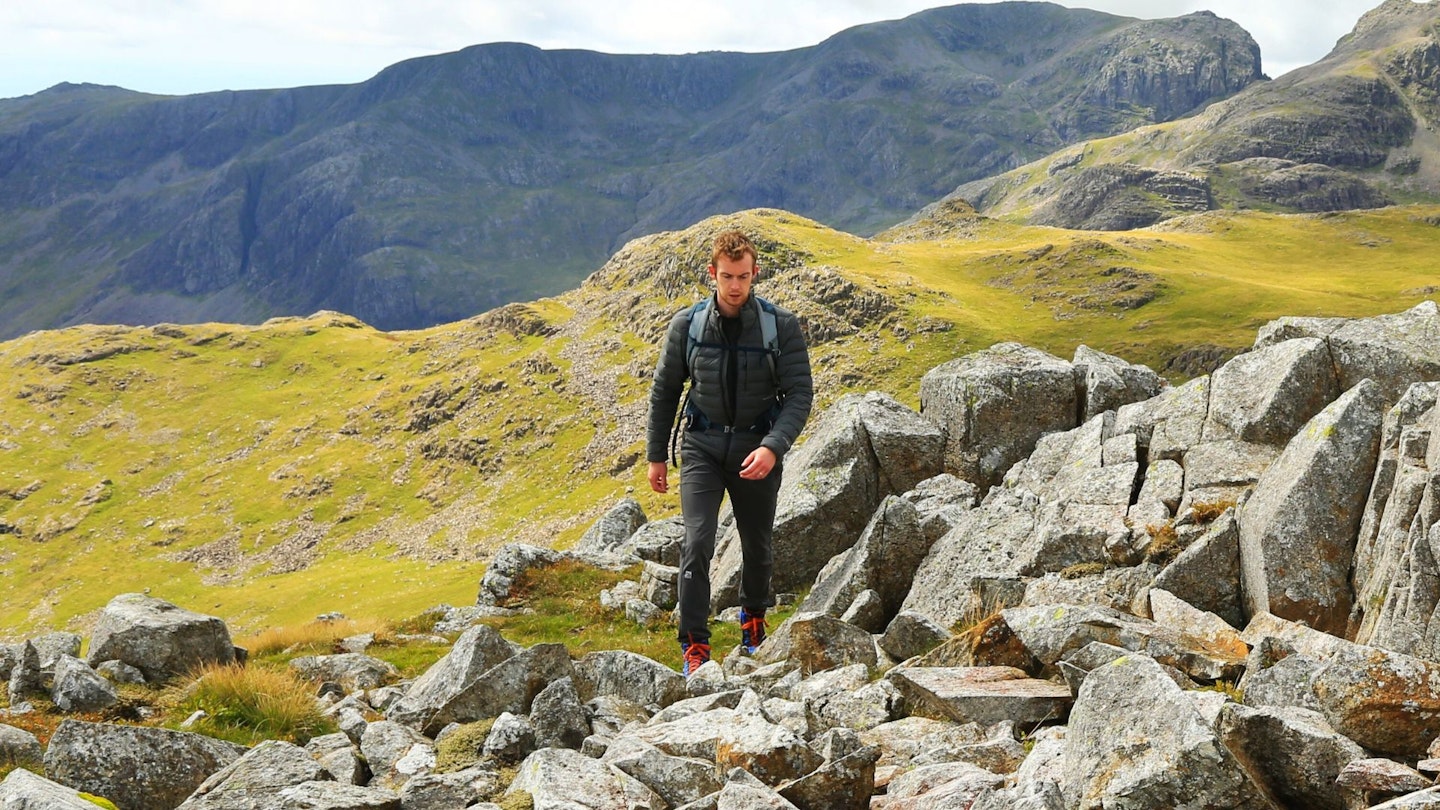
The majority of the boots and shoes recommended here were tested by Chris Williams, who is one of our staff writers and gear testers on Live For The Outdoors. He trained as a journalist in New Zealand and has been working on Live For The Outdoors since 2021.
The footwear we review are always put to thorough testing aimed to push them on the types of terrain they're designed for. Our testers are fastidious and objective, always focused on the ultimate aim of finding the best options for our audience.
How do I choose a vegan walking boot?
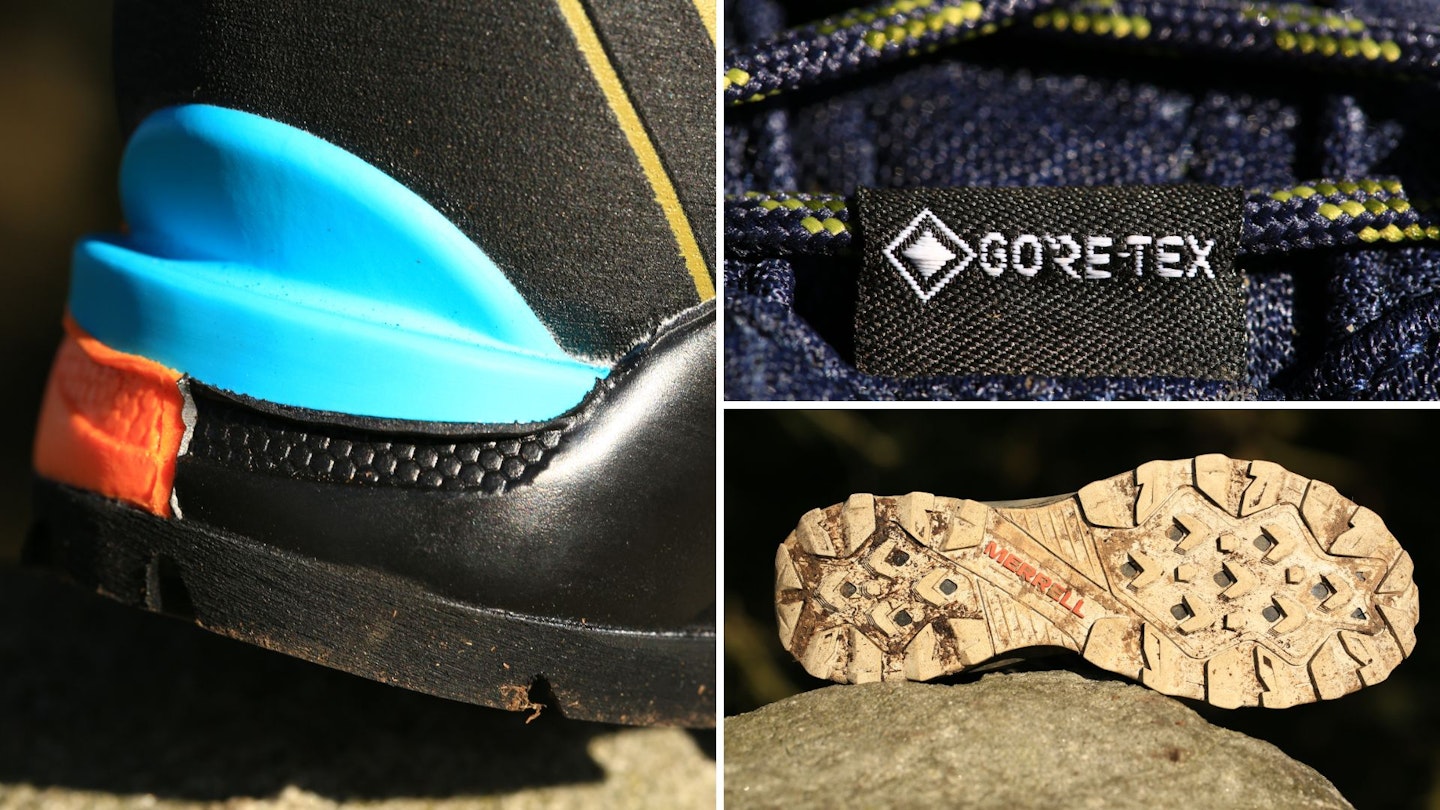
The absence of animal products is the key place to begin. But if you're after a more ethically made boot or shoe, consider the use of recycled materials. Whether a boot or shoe can be re-soled is also of key importance to longevity and, therefore, sustainability.
Beyond this, the same considerations apply to vegan walking boots as any other. Is the sole designed for the terrain you prefer? Does the footwear shape match your foot? What's your budget? If you need something tough, does the model you want have features like a rand and toe cap?
The best thing to do is first decide what you need your hiking footwear for, make a list of the features it needs, the ones you'd like it to have, and your budget. You can use this system to quickly narrow down the best walking boots or hiking shoes for you.
How do I clean vegan walking boots and shoes?
The synthetic fabrics used in vegan hiking boot uppers can be cleaned with the same products we'd recommend for cleaning all hiking footwear.
But given vegan boots don't use leather, you can use a re-proofing spray instead of a wax to replenish its water-repellency when you need to. The best options are Granger's Footwear Repel Plus or Nikwax Fabric and Leather Proof is another excellent choice. The exception here is Altberg's Dalesway boot, which the brand recommends takes the same Leder-Gris wax used for its leather boots.
About the author
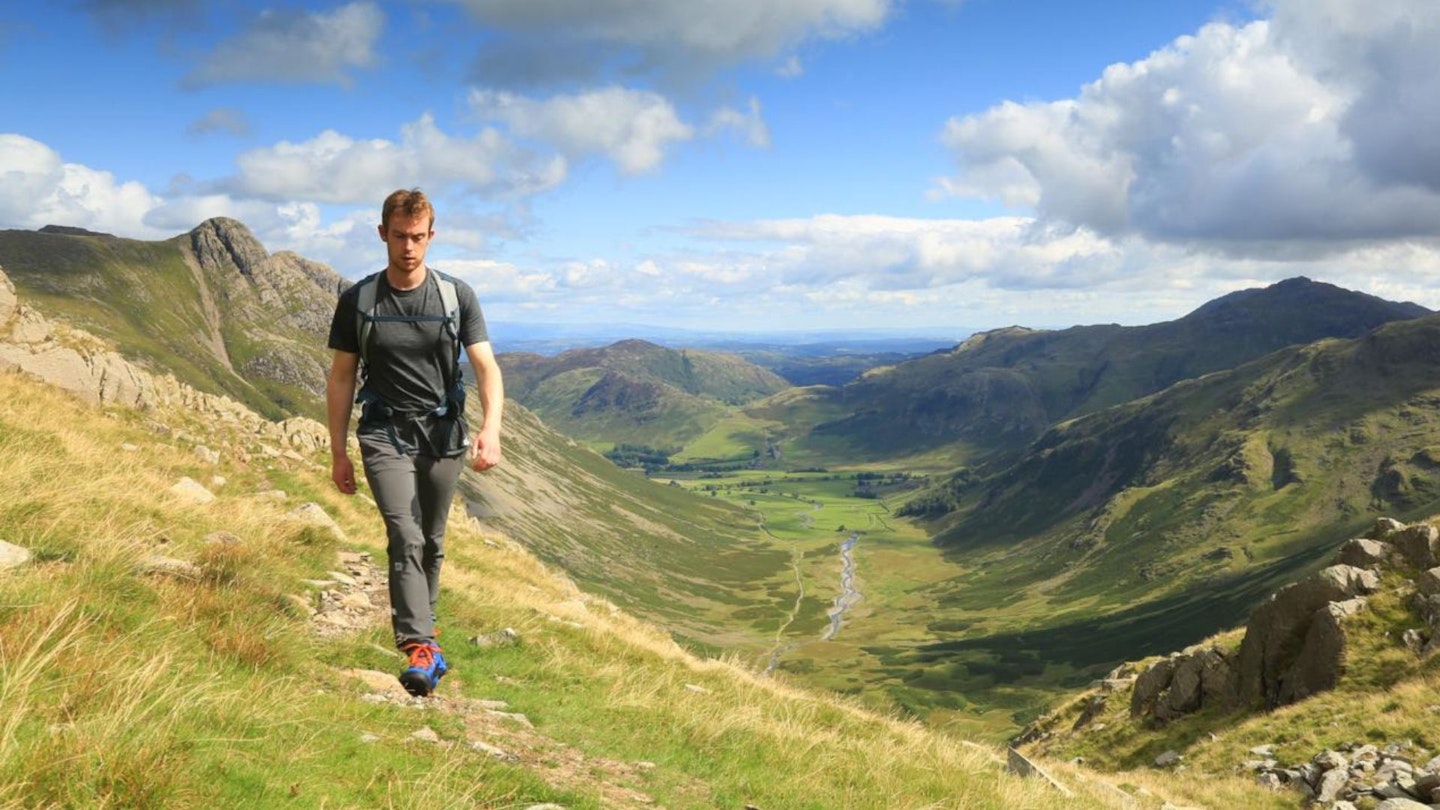
Chris Williams is a Digital Content Writer for Live For The Outdoors. He trained as a journalist in New Zealand and has been working on Live For The Outdoors since 2021.
